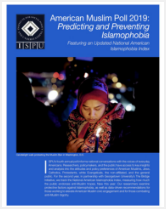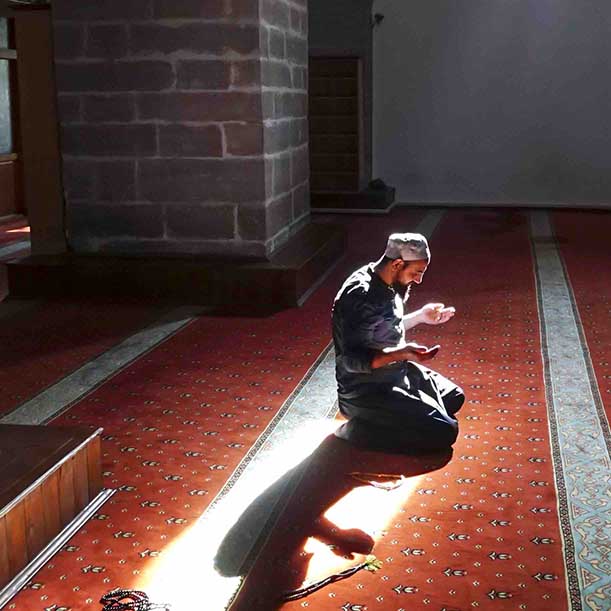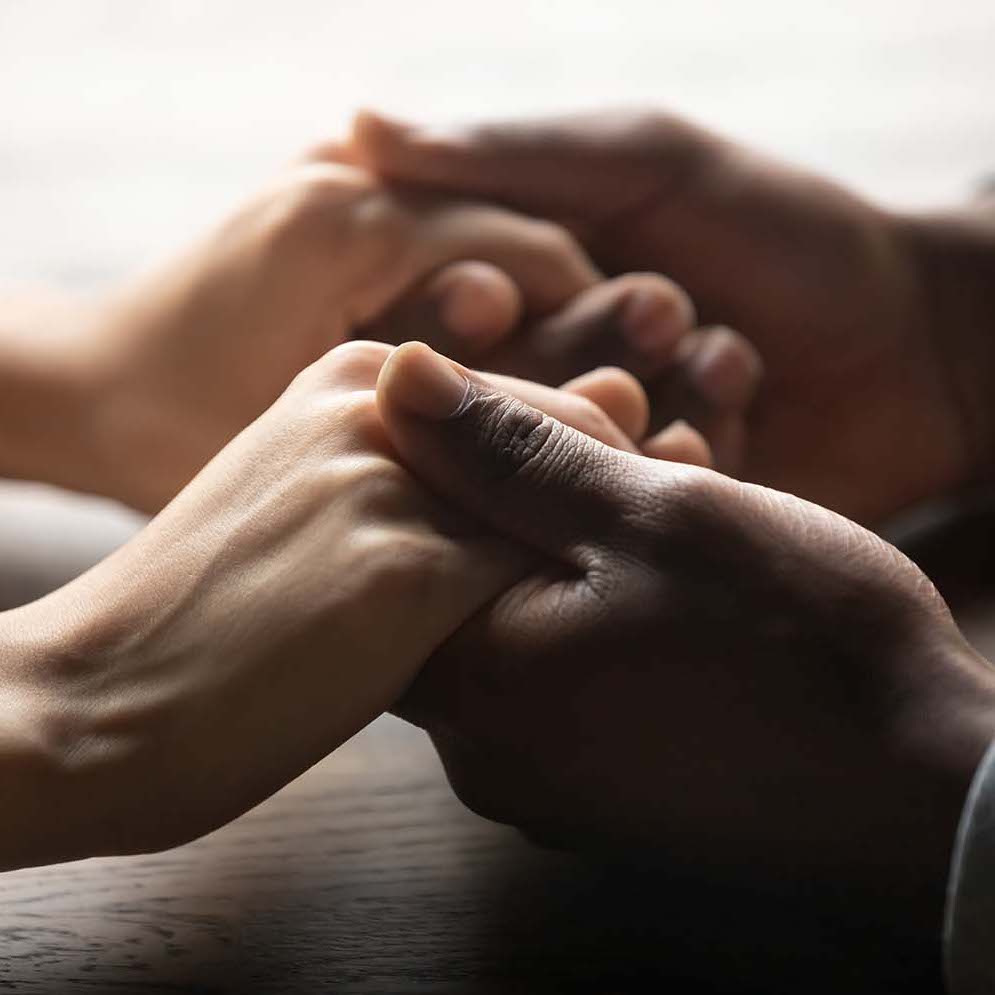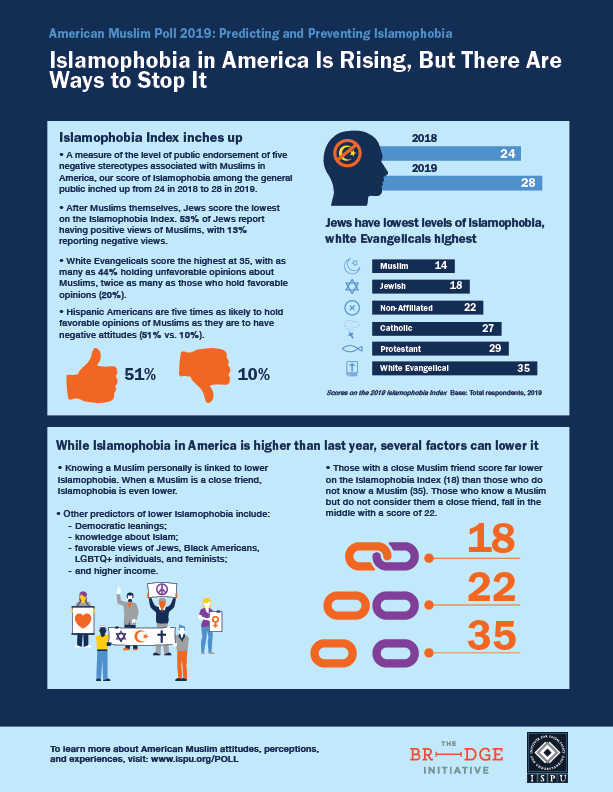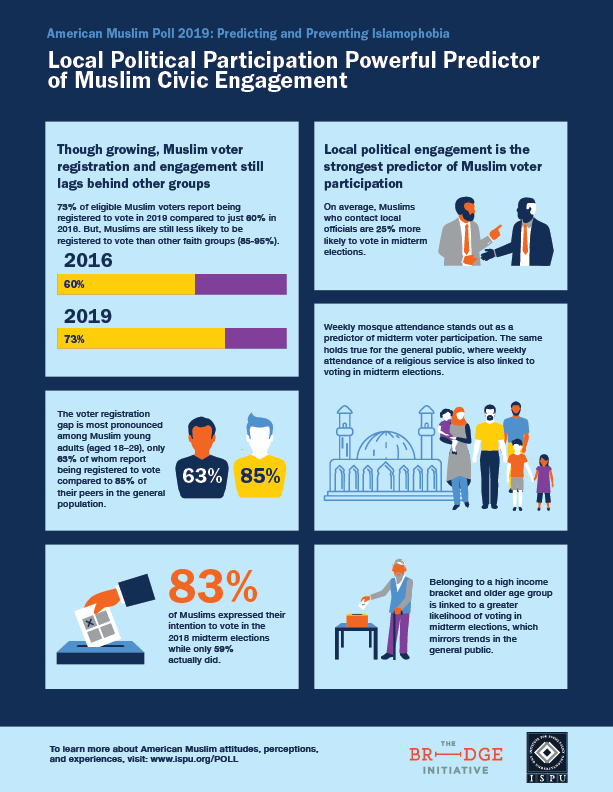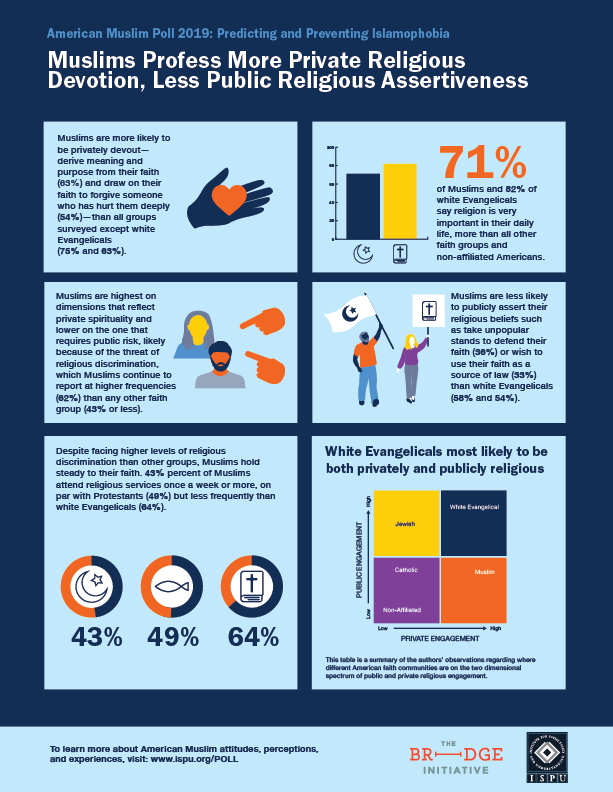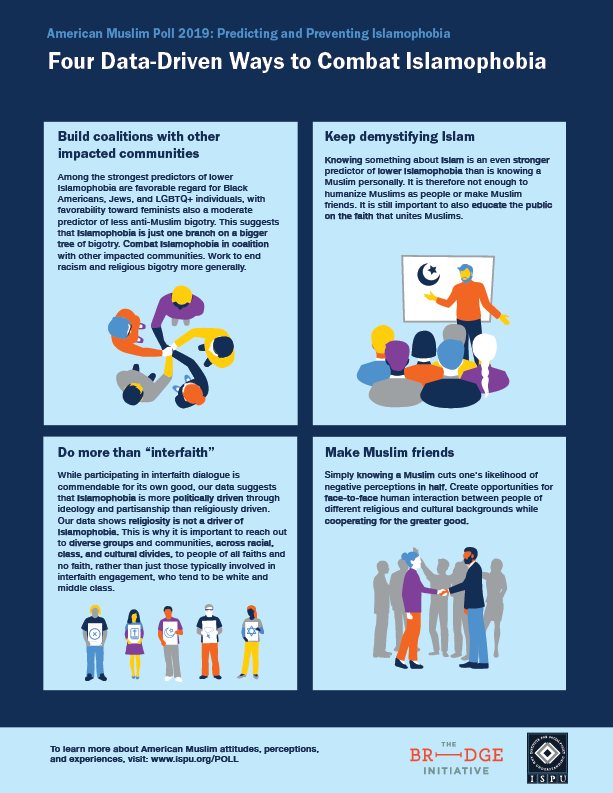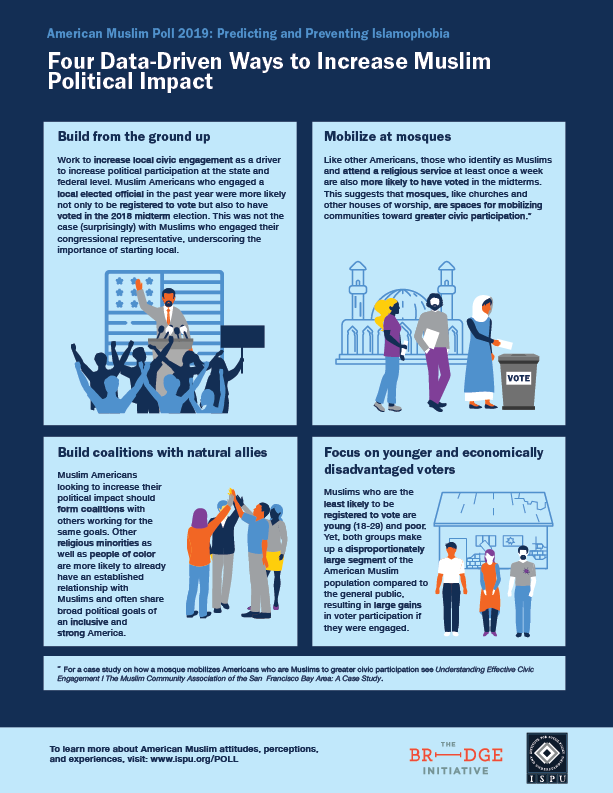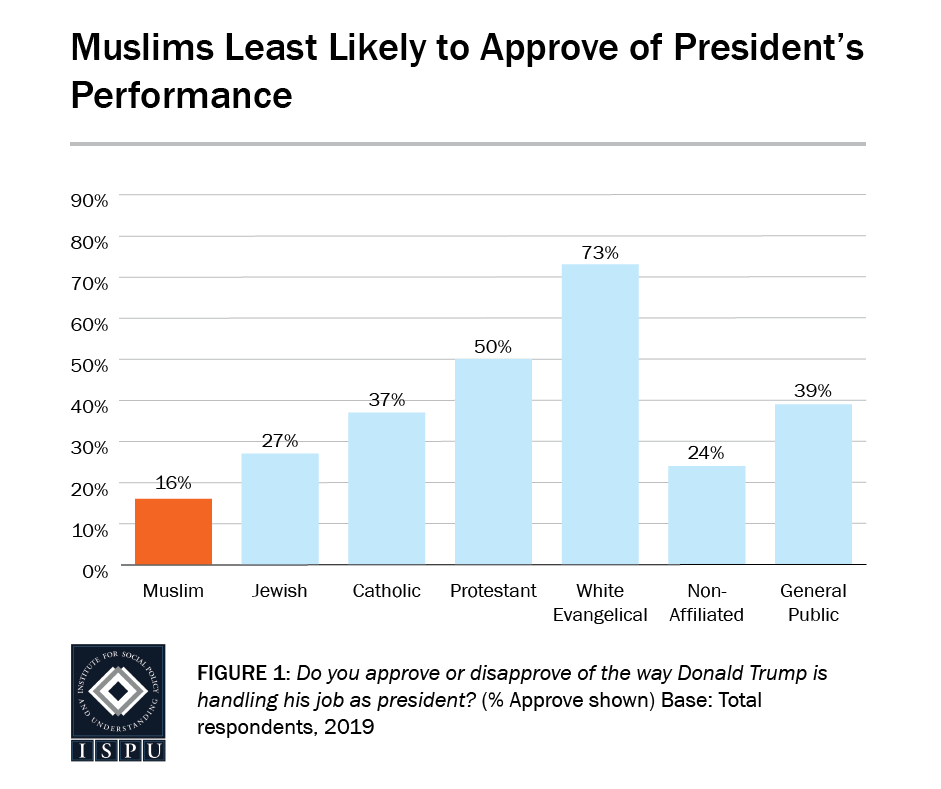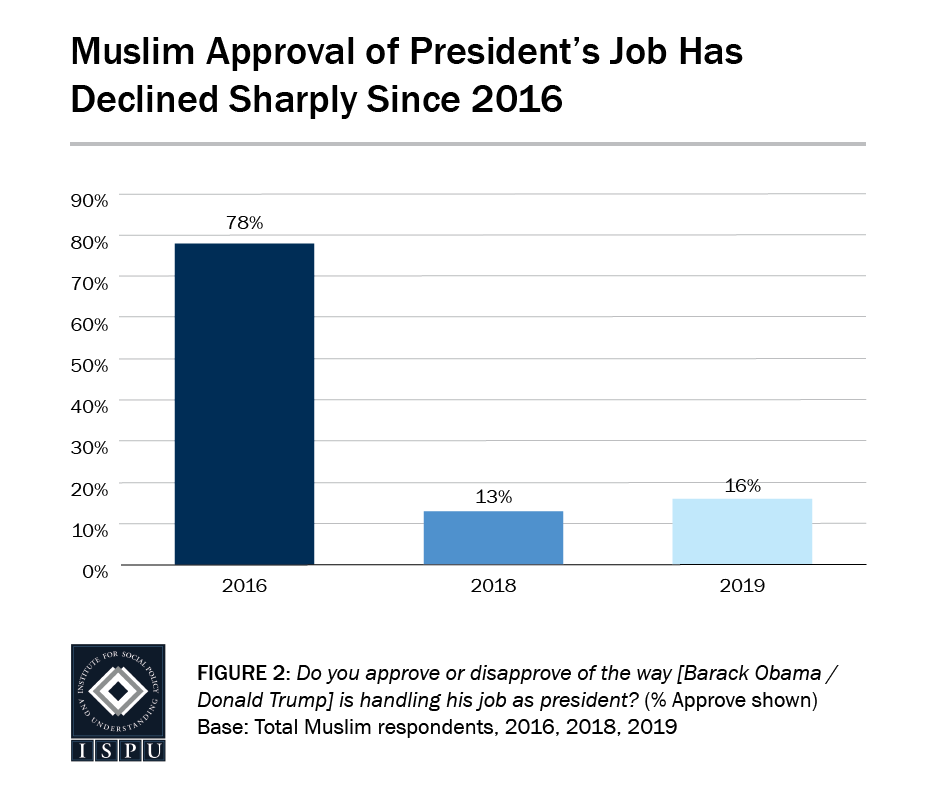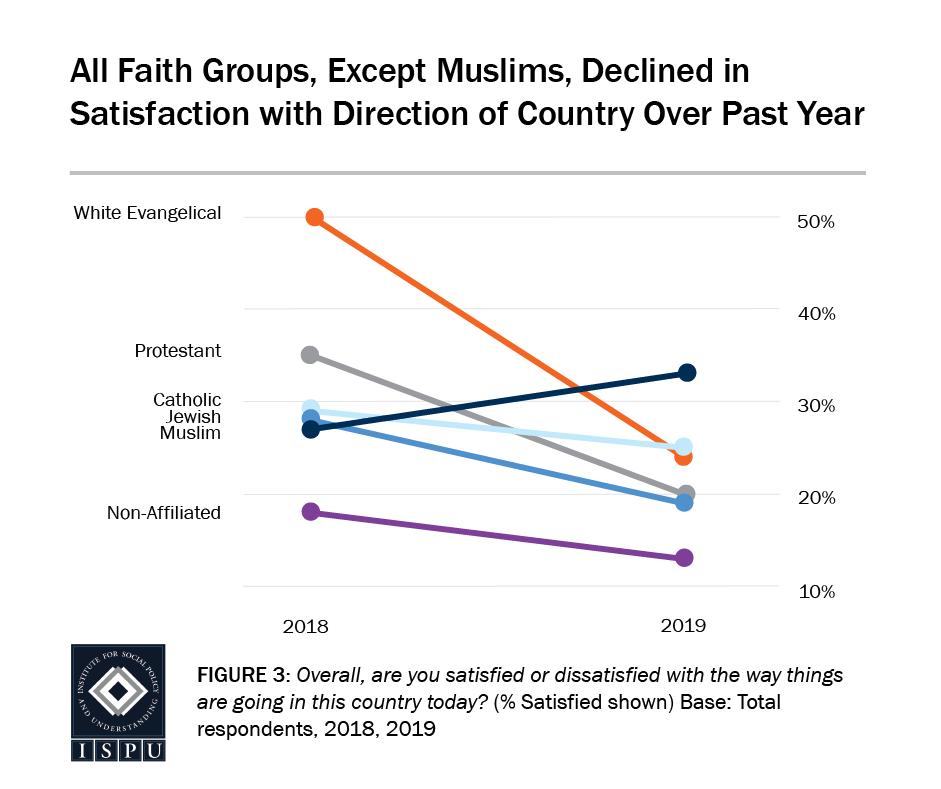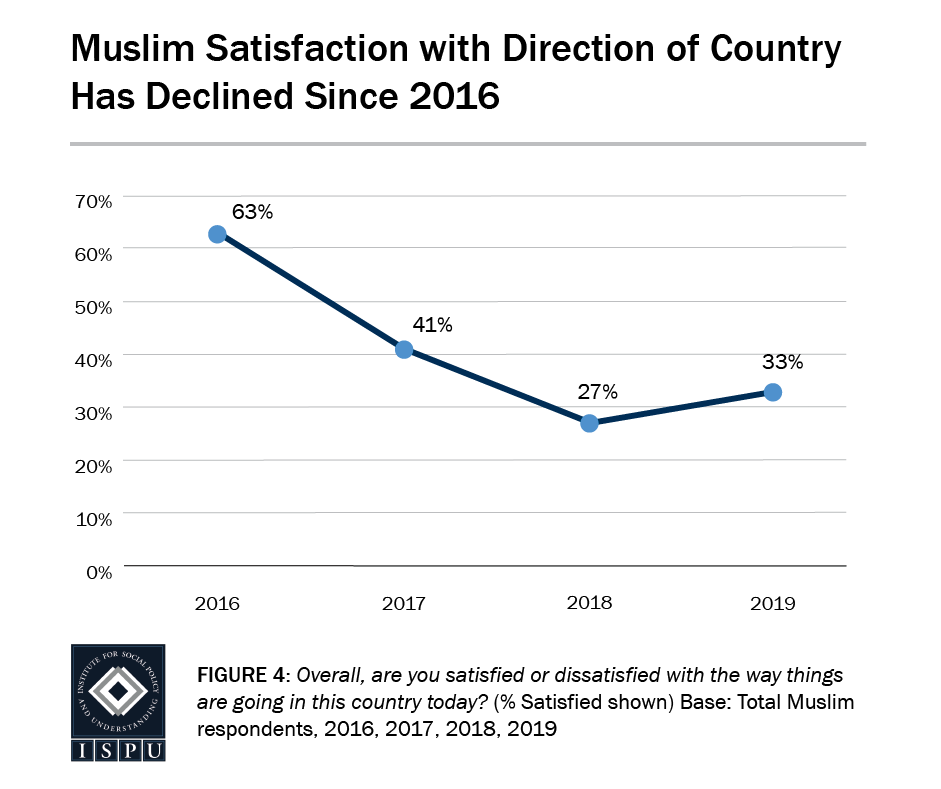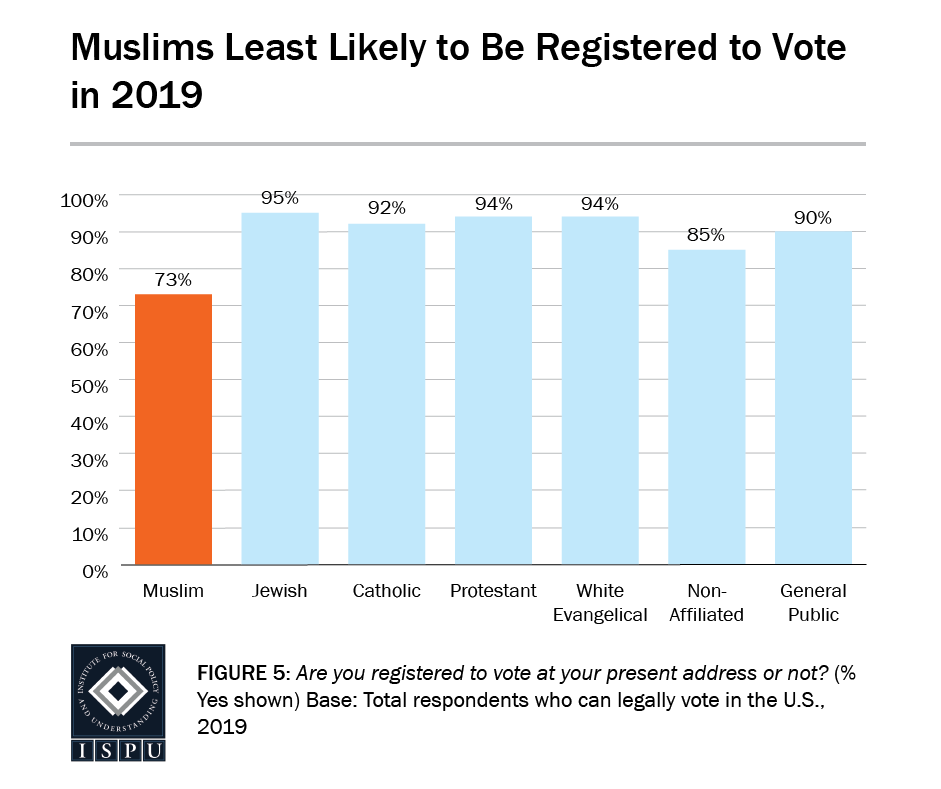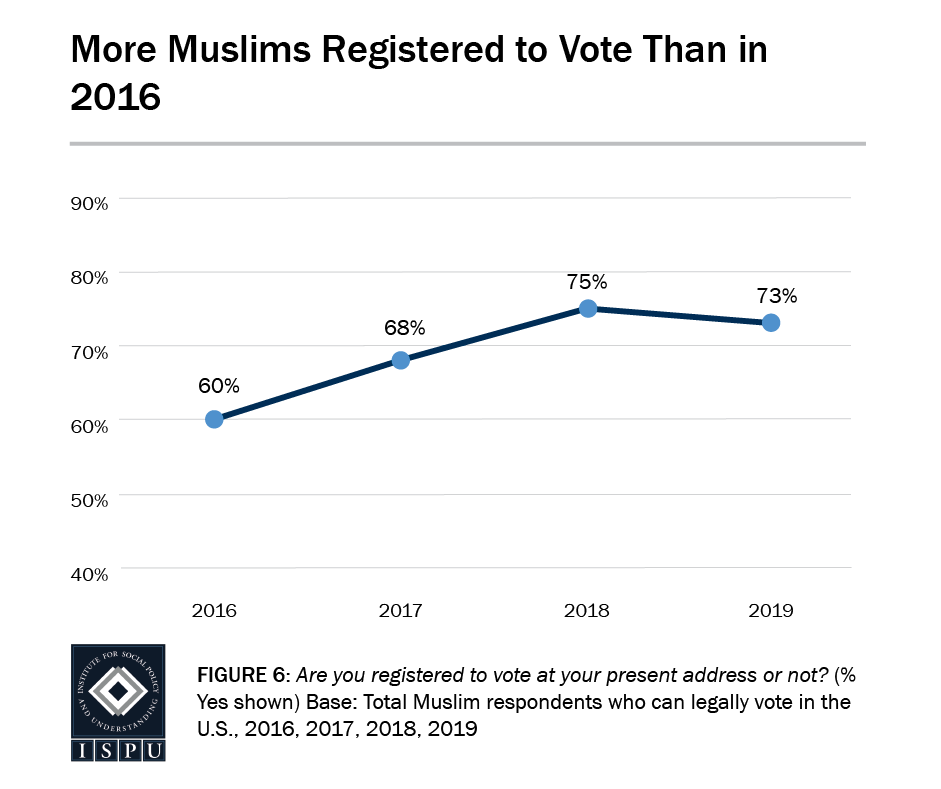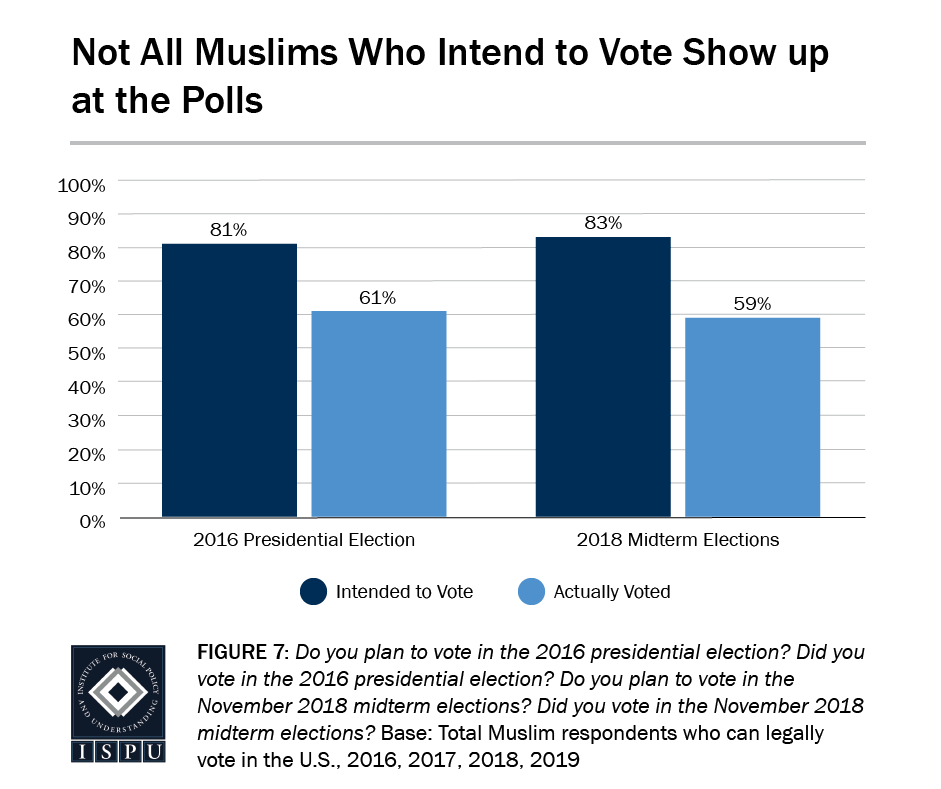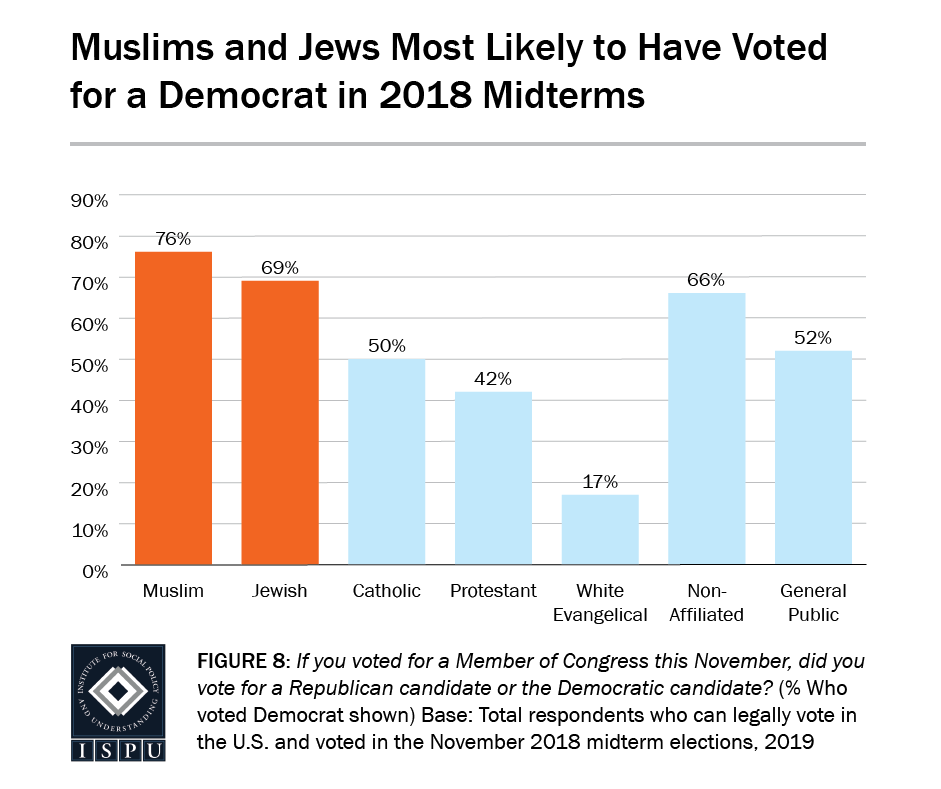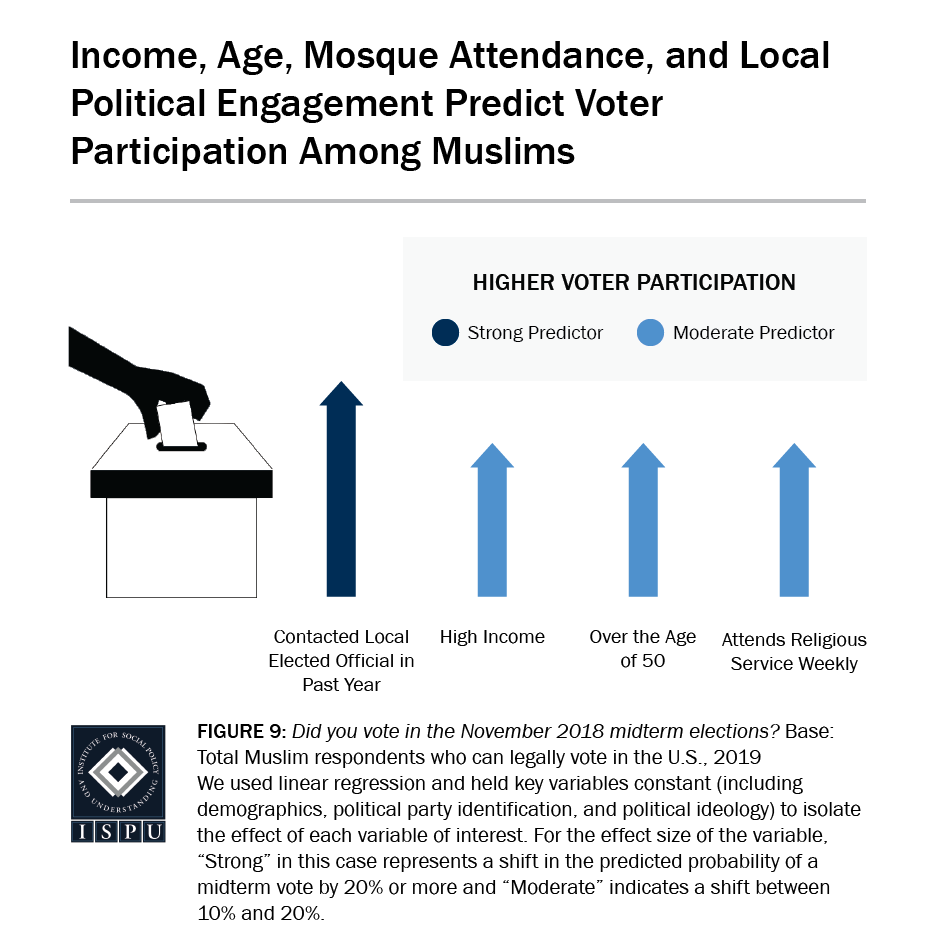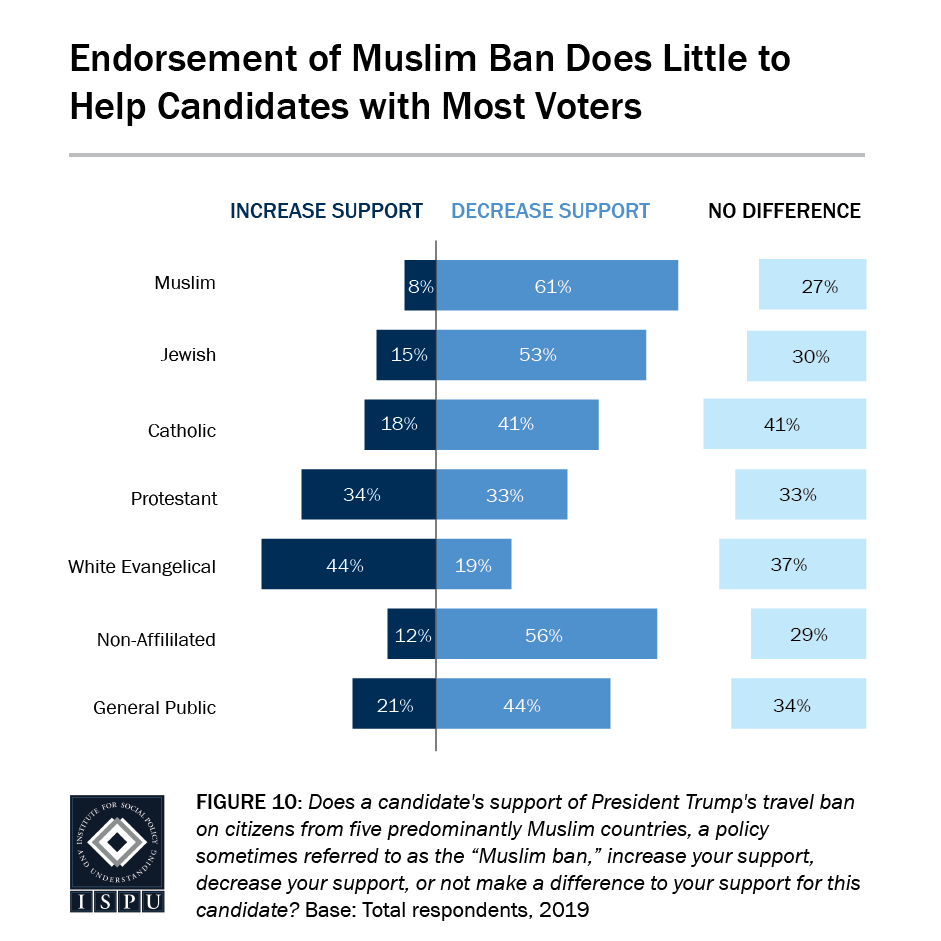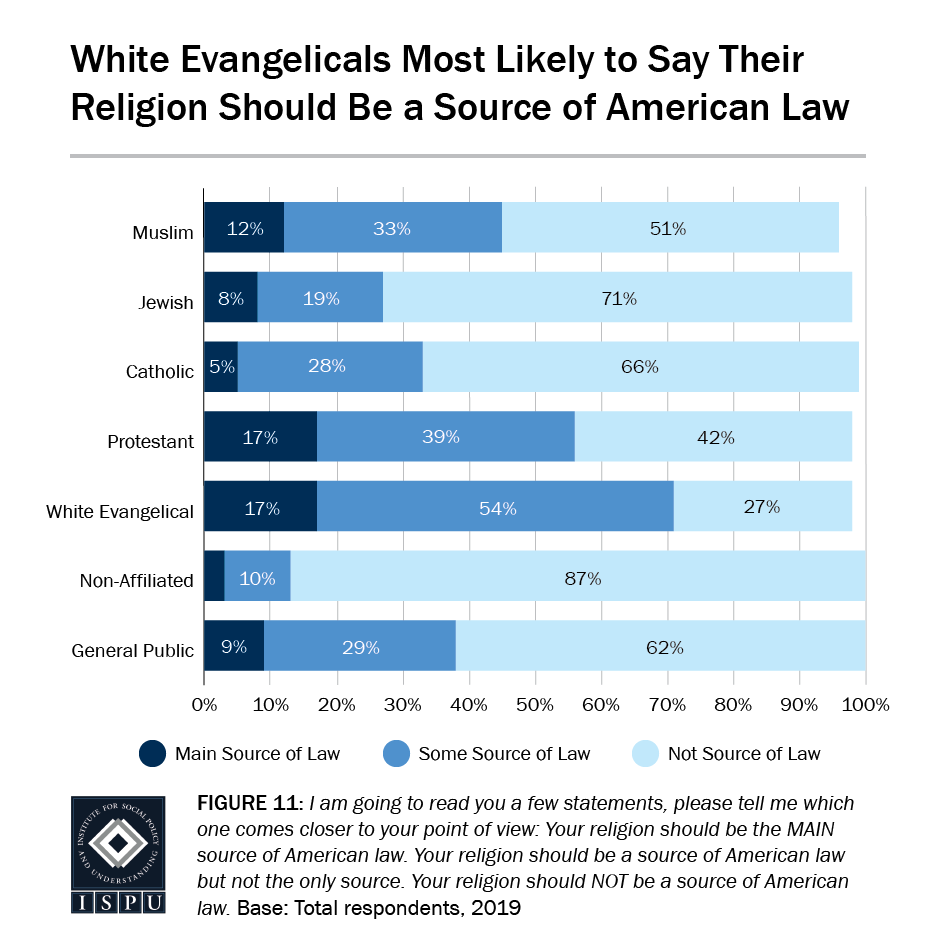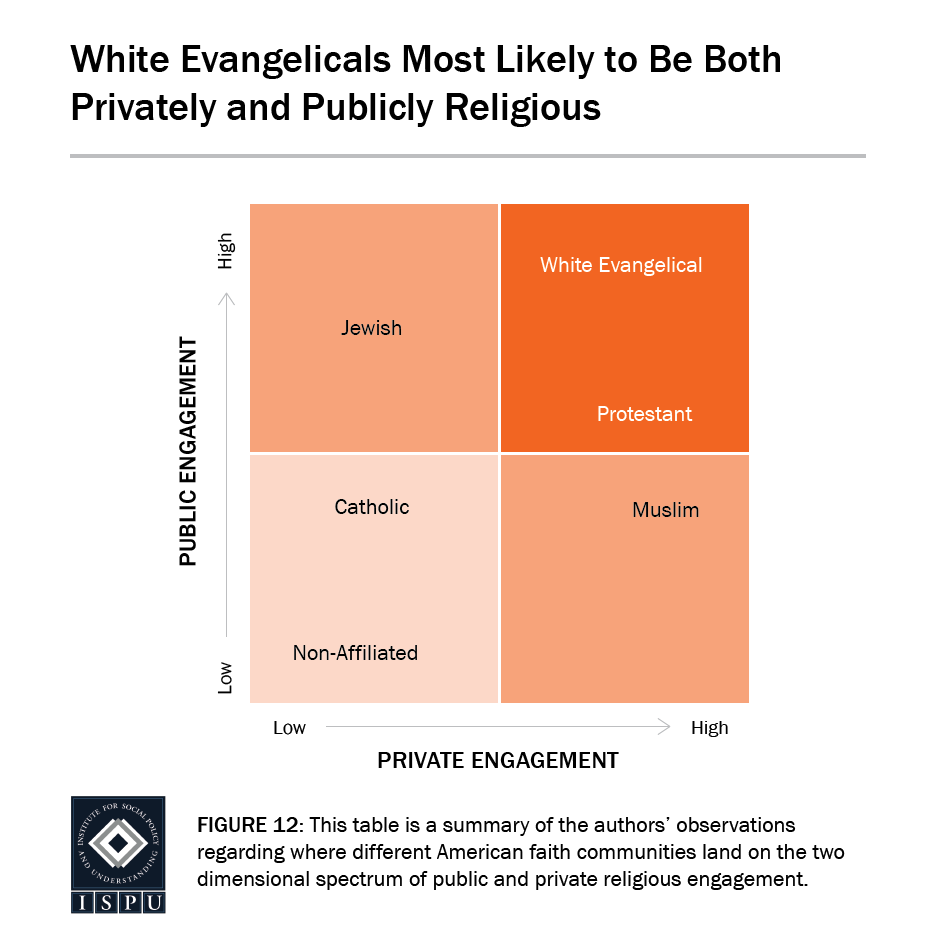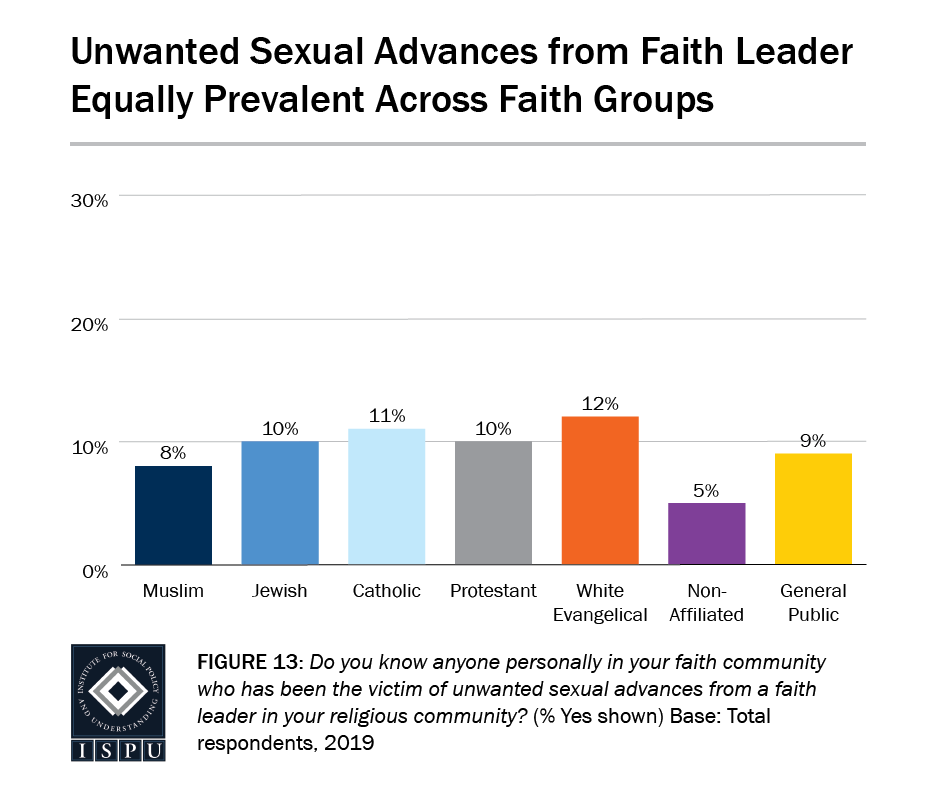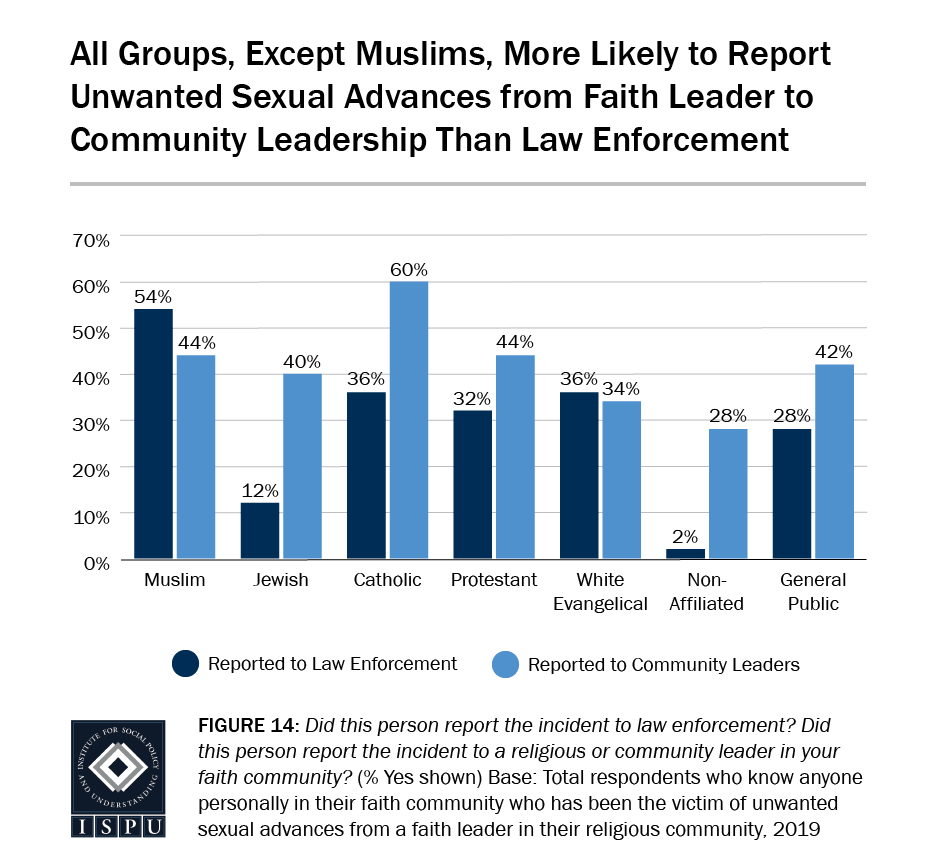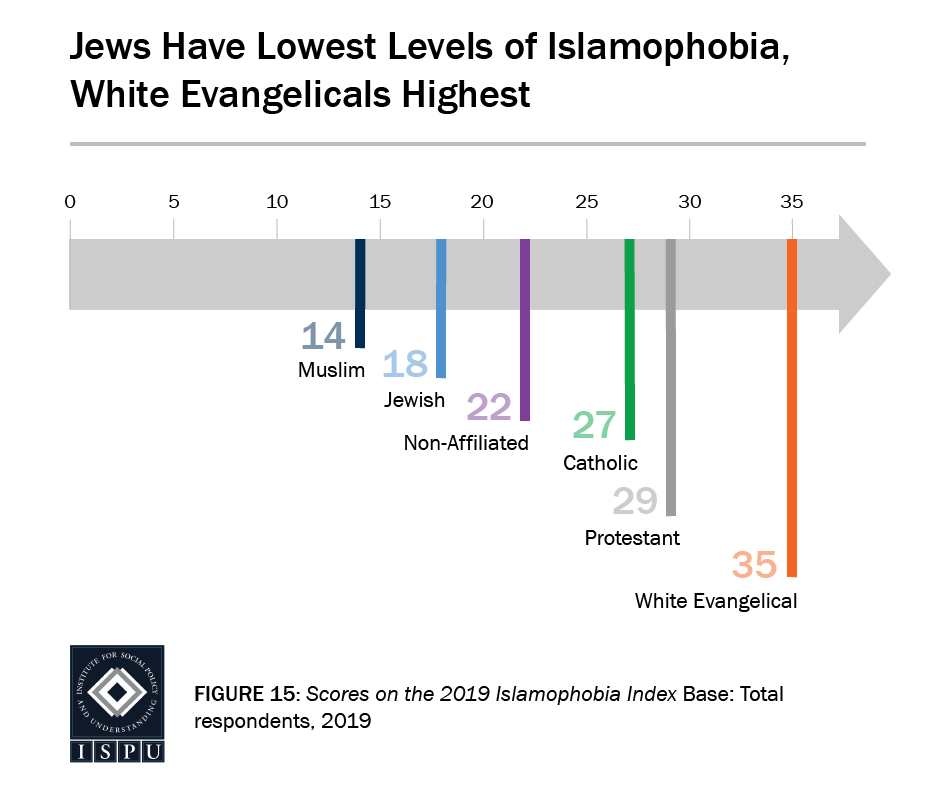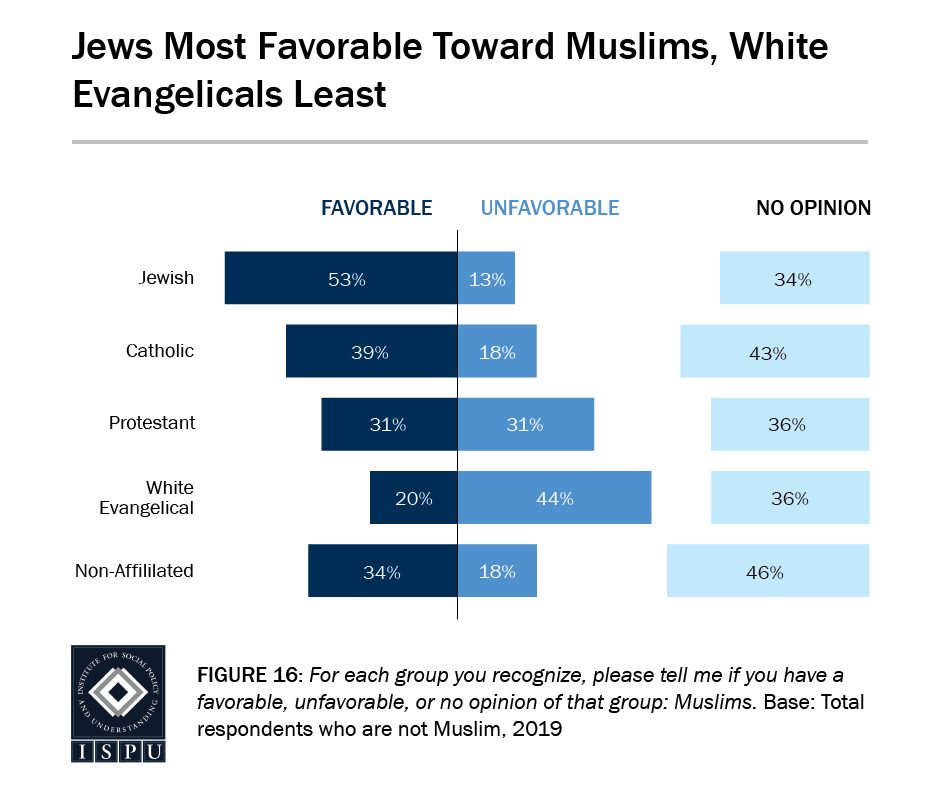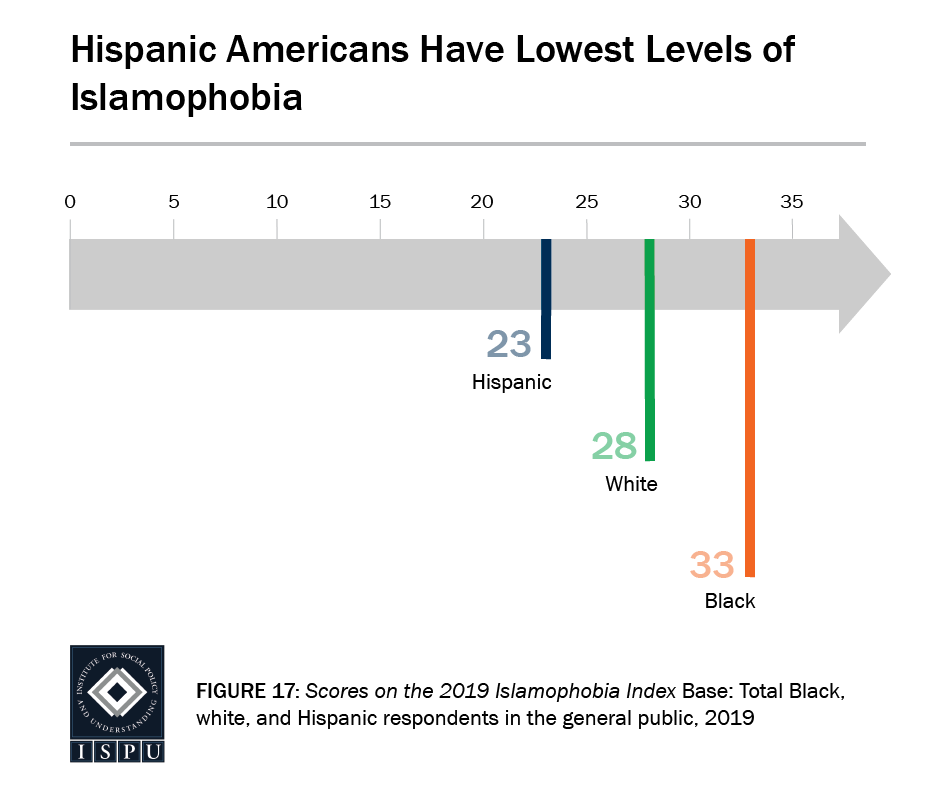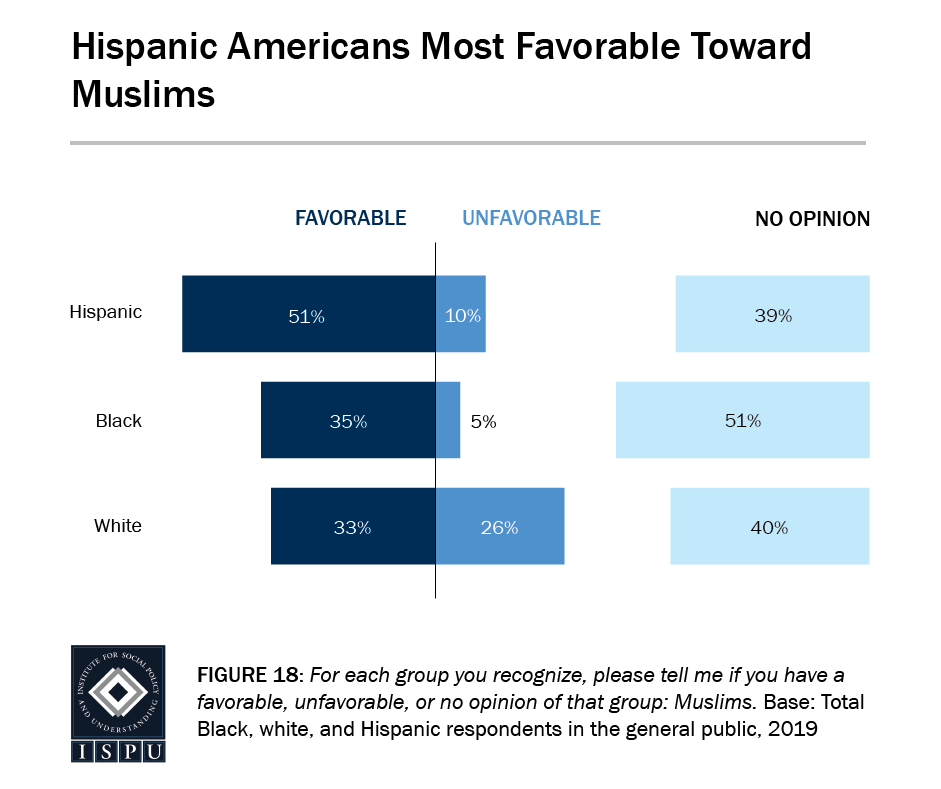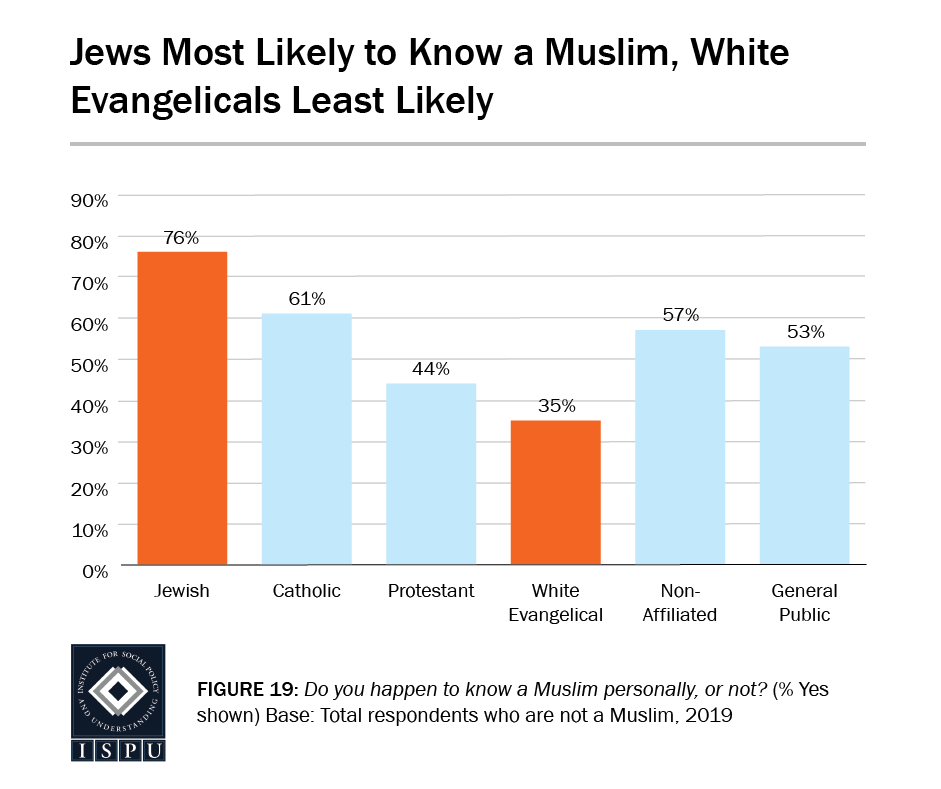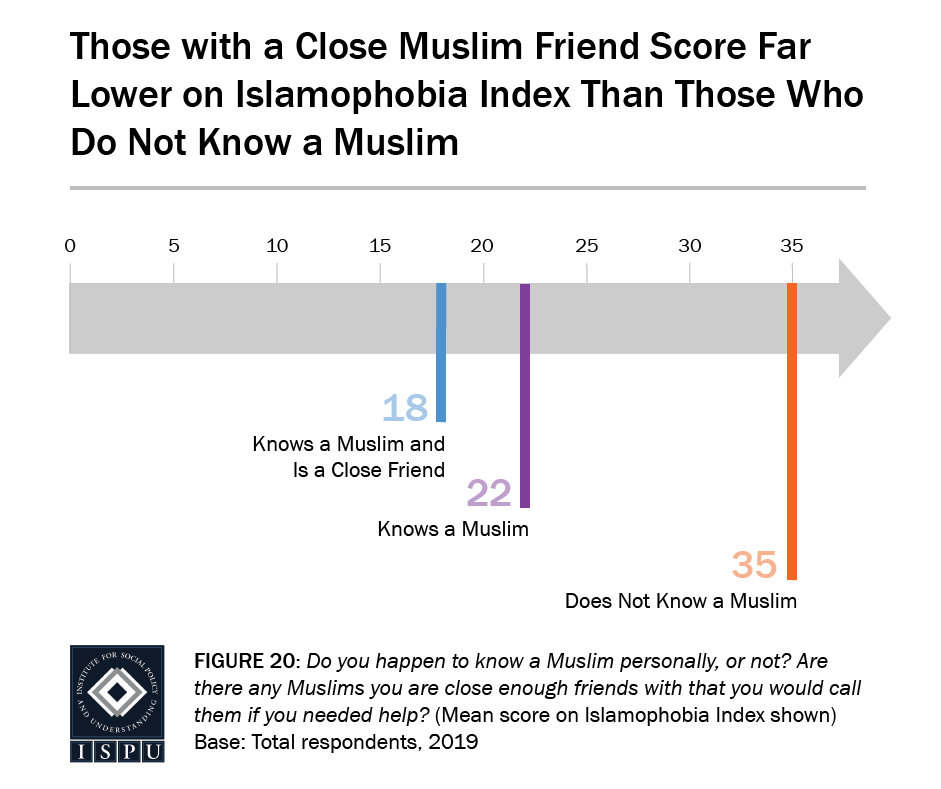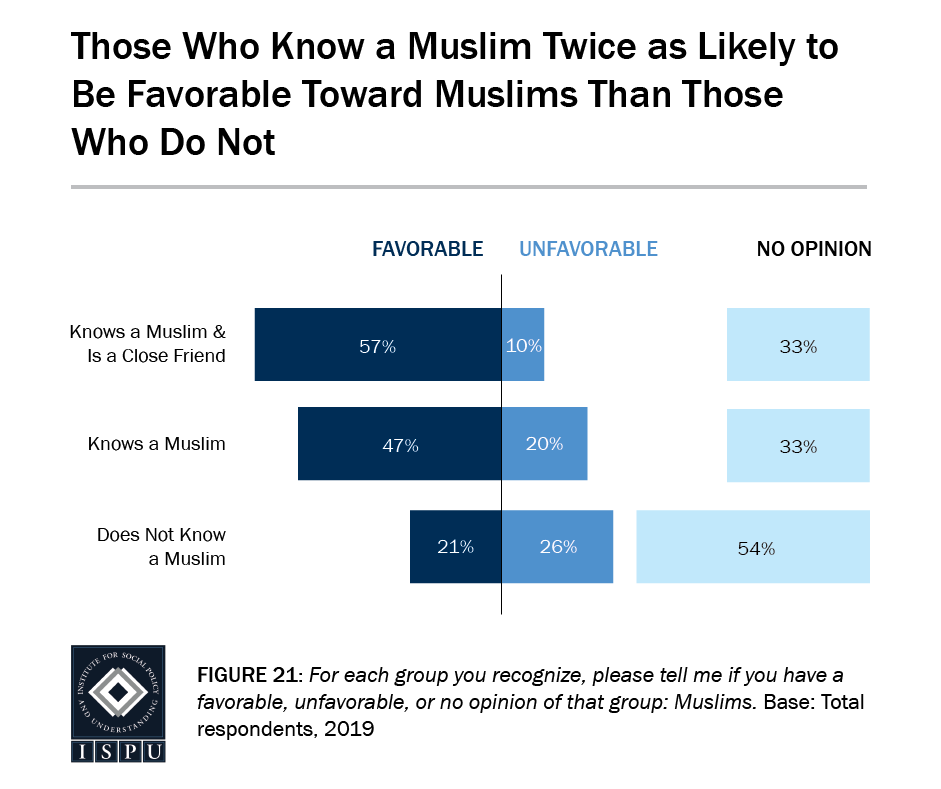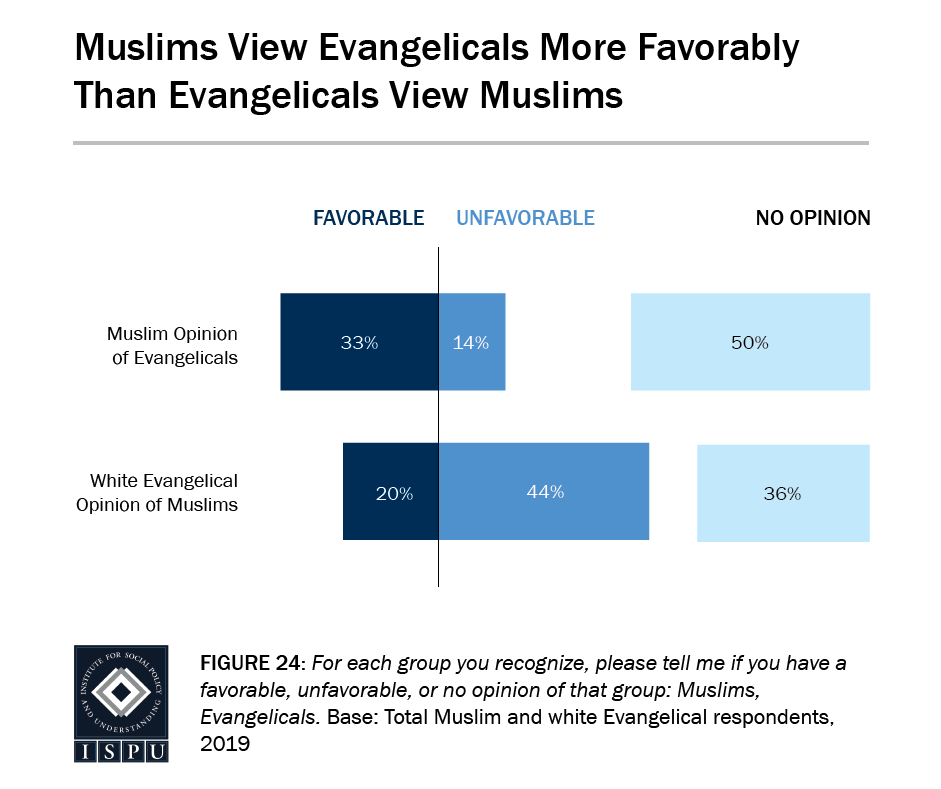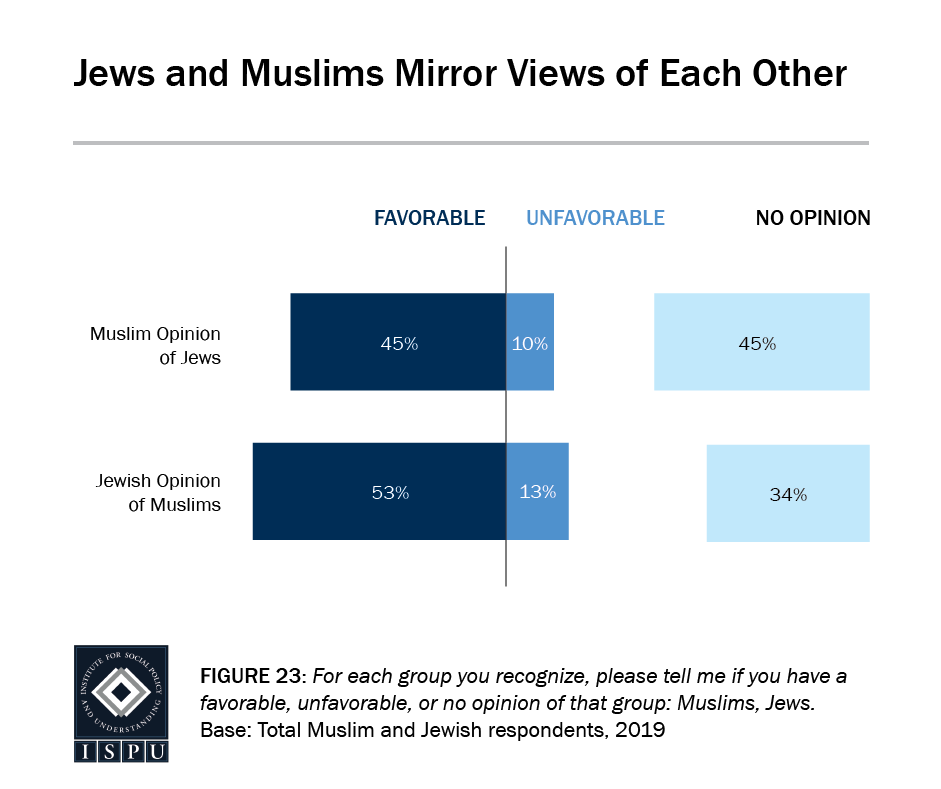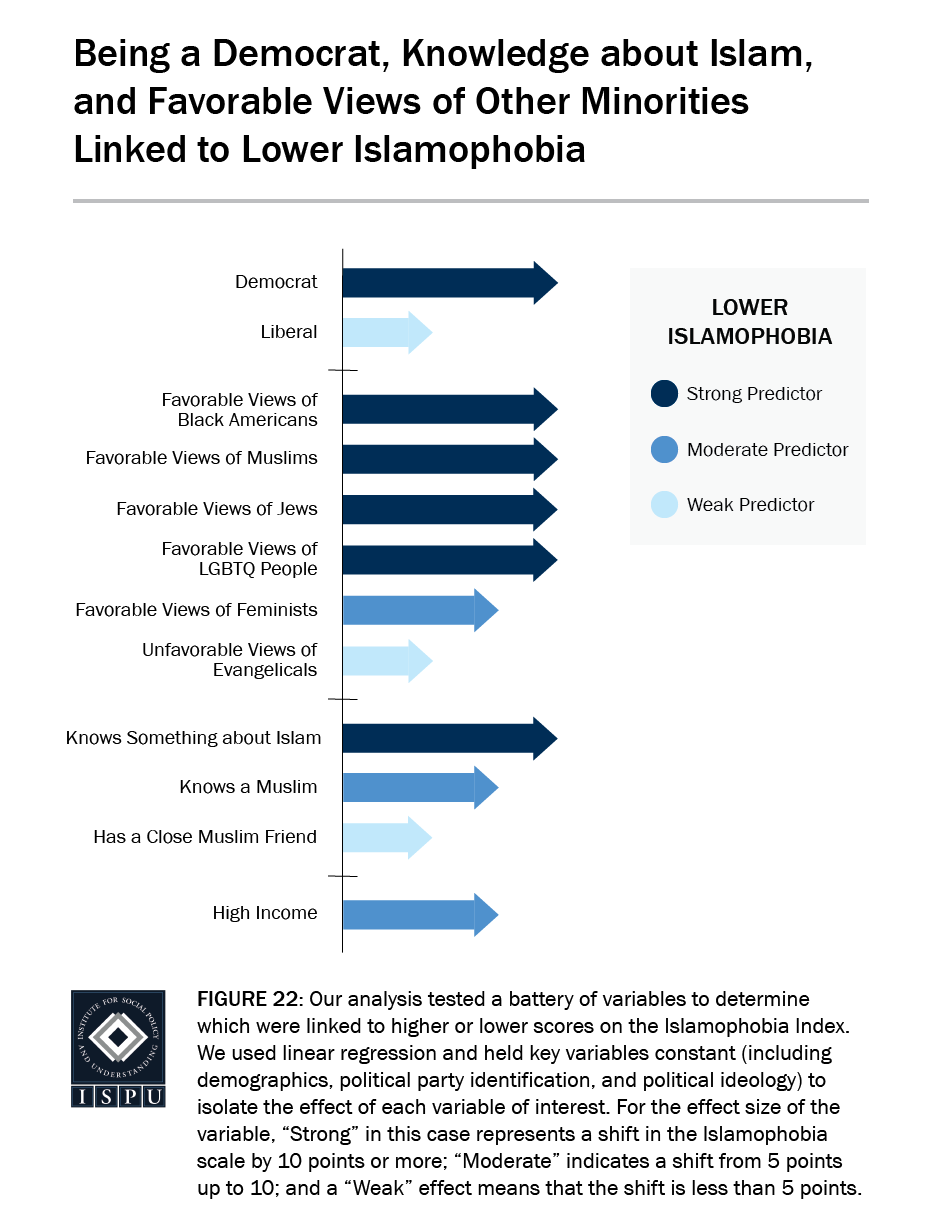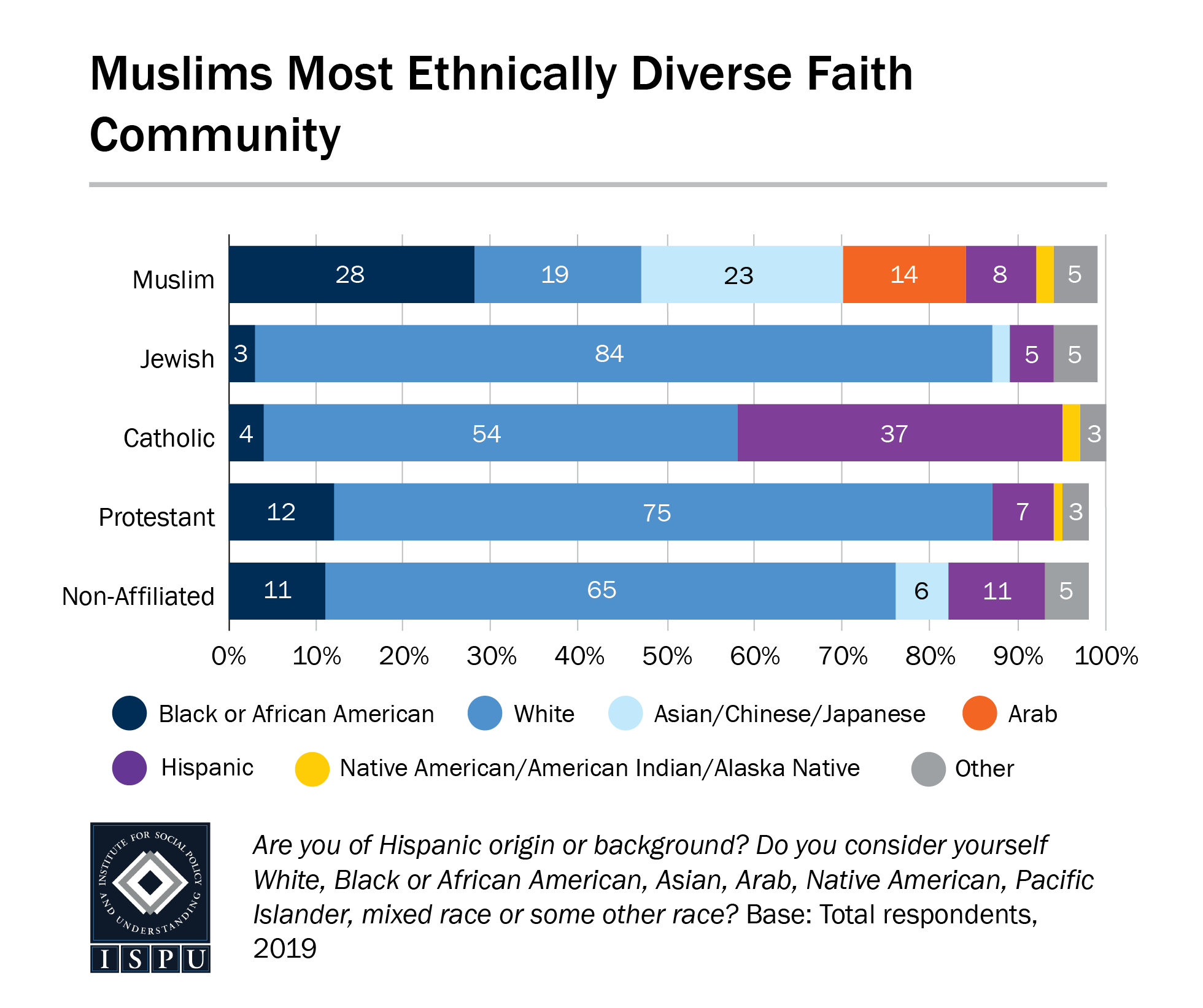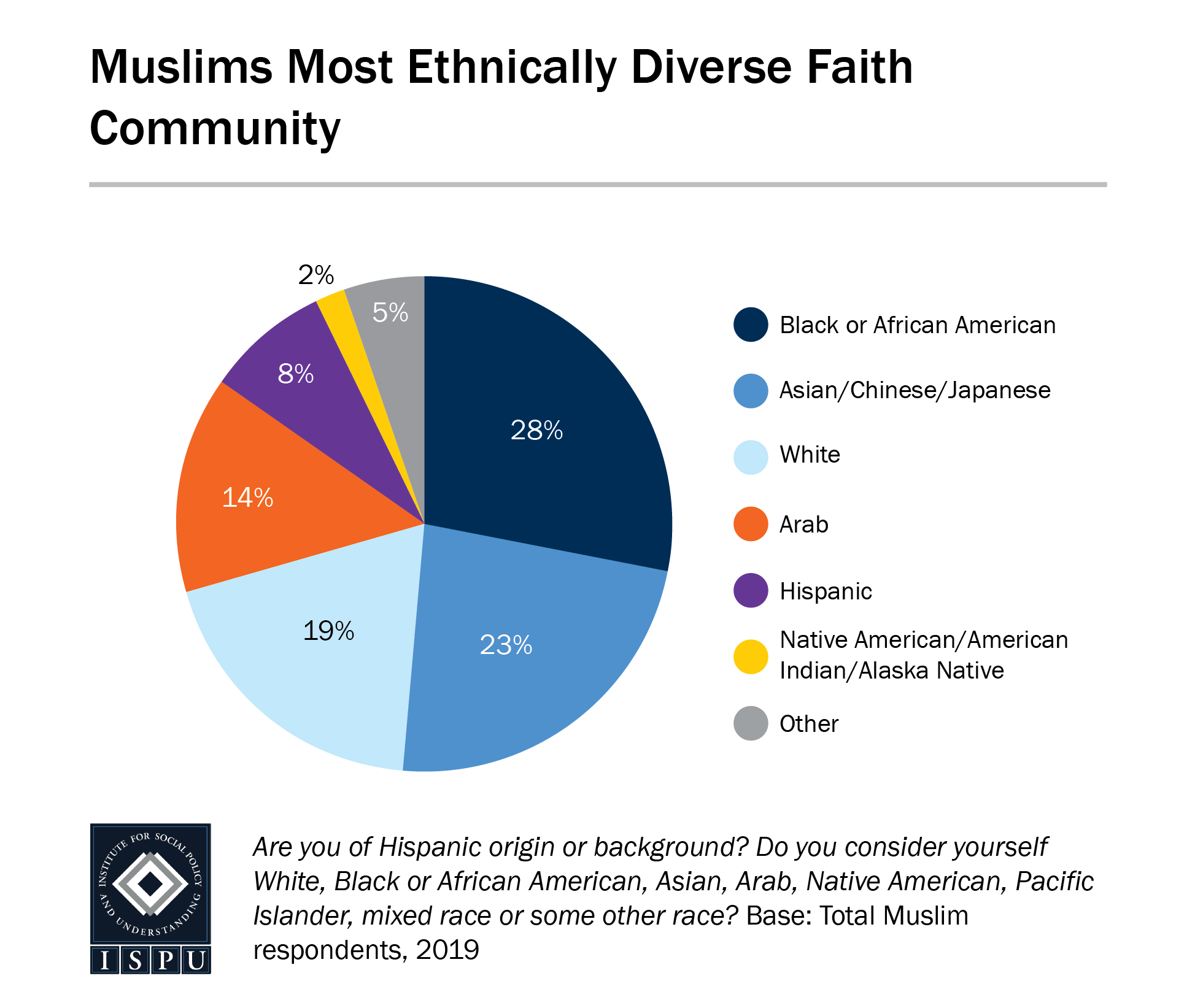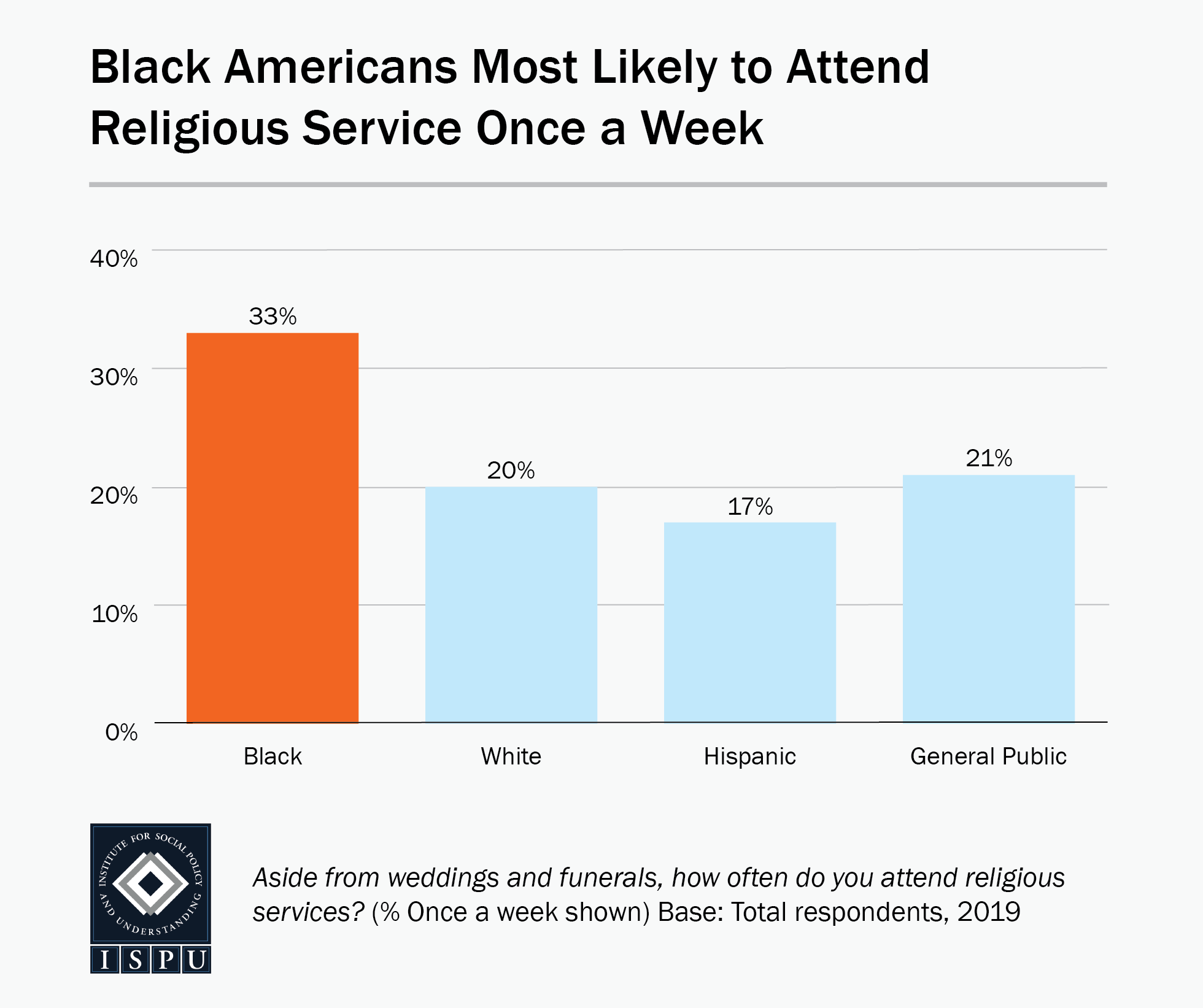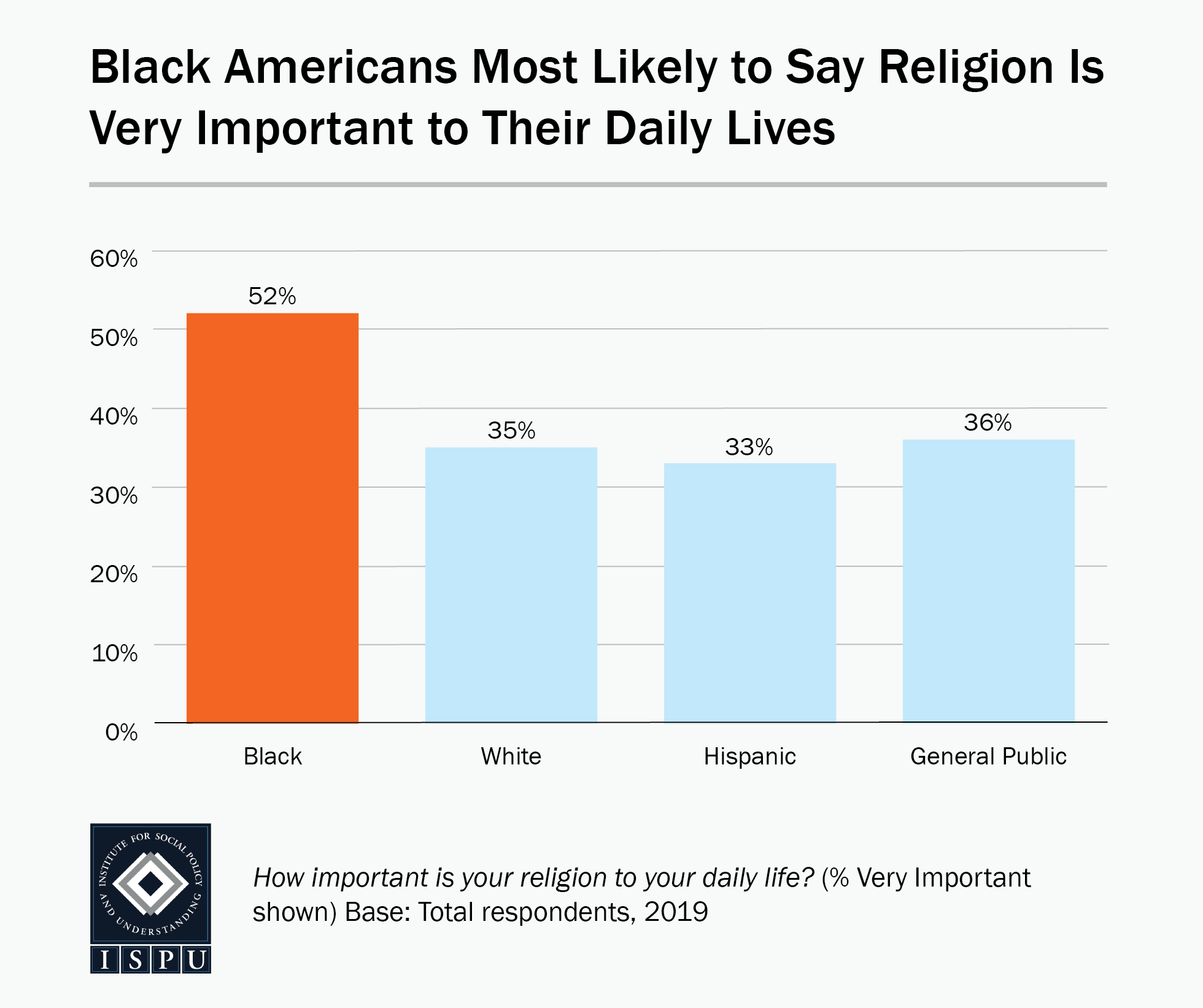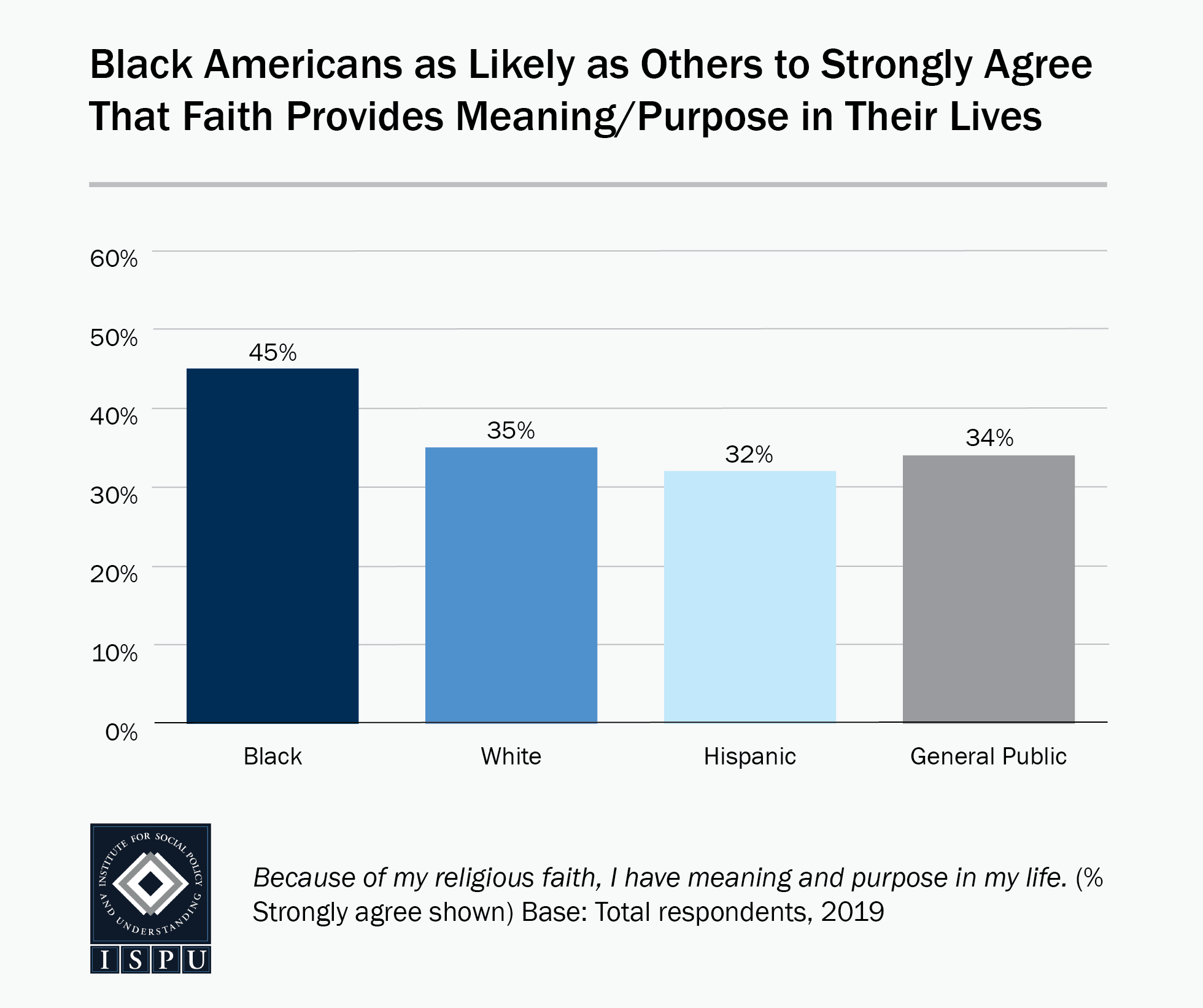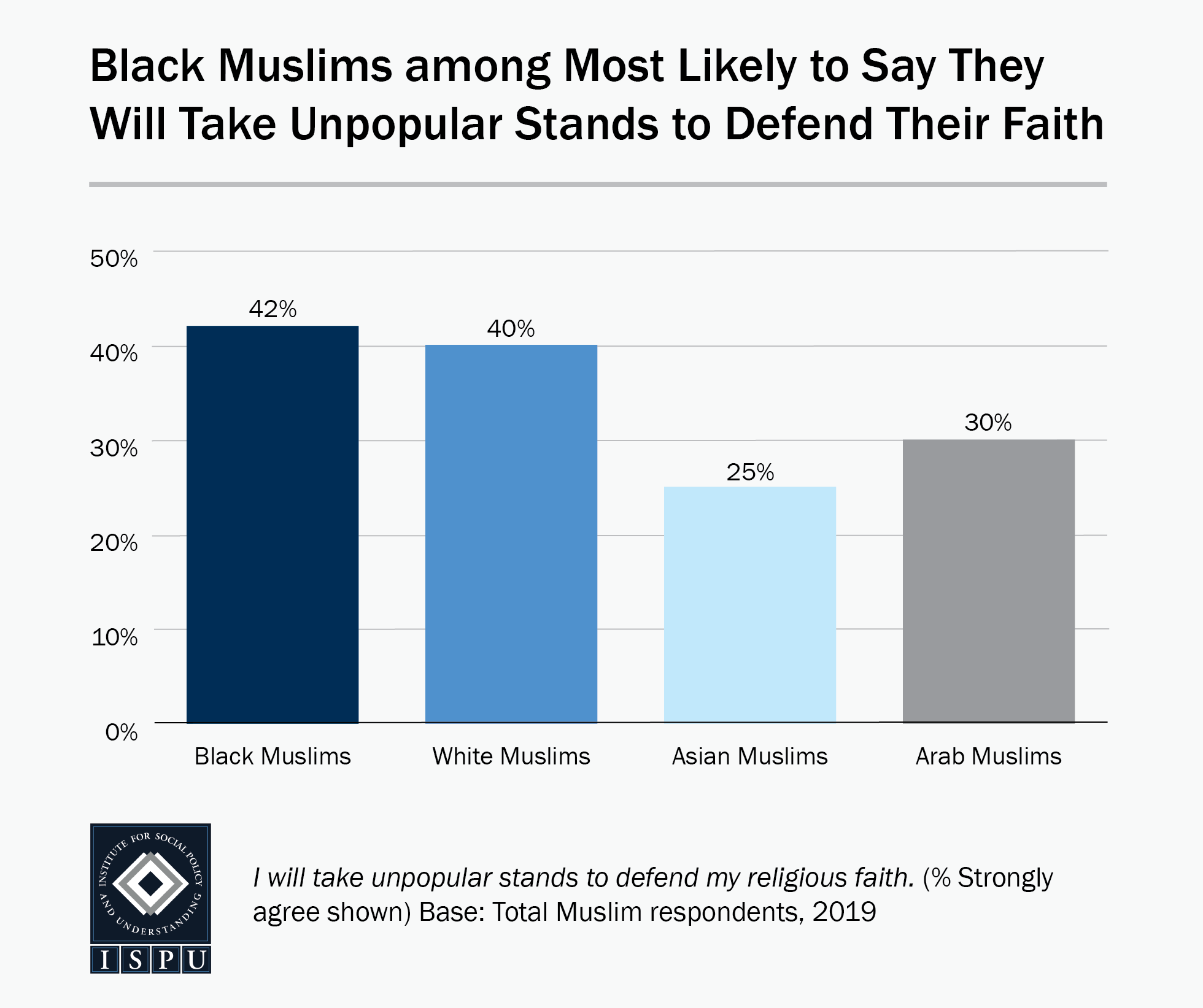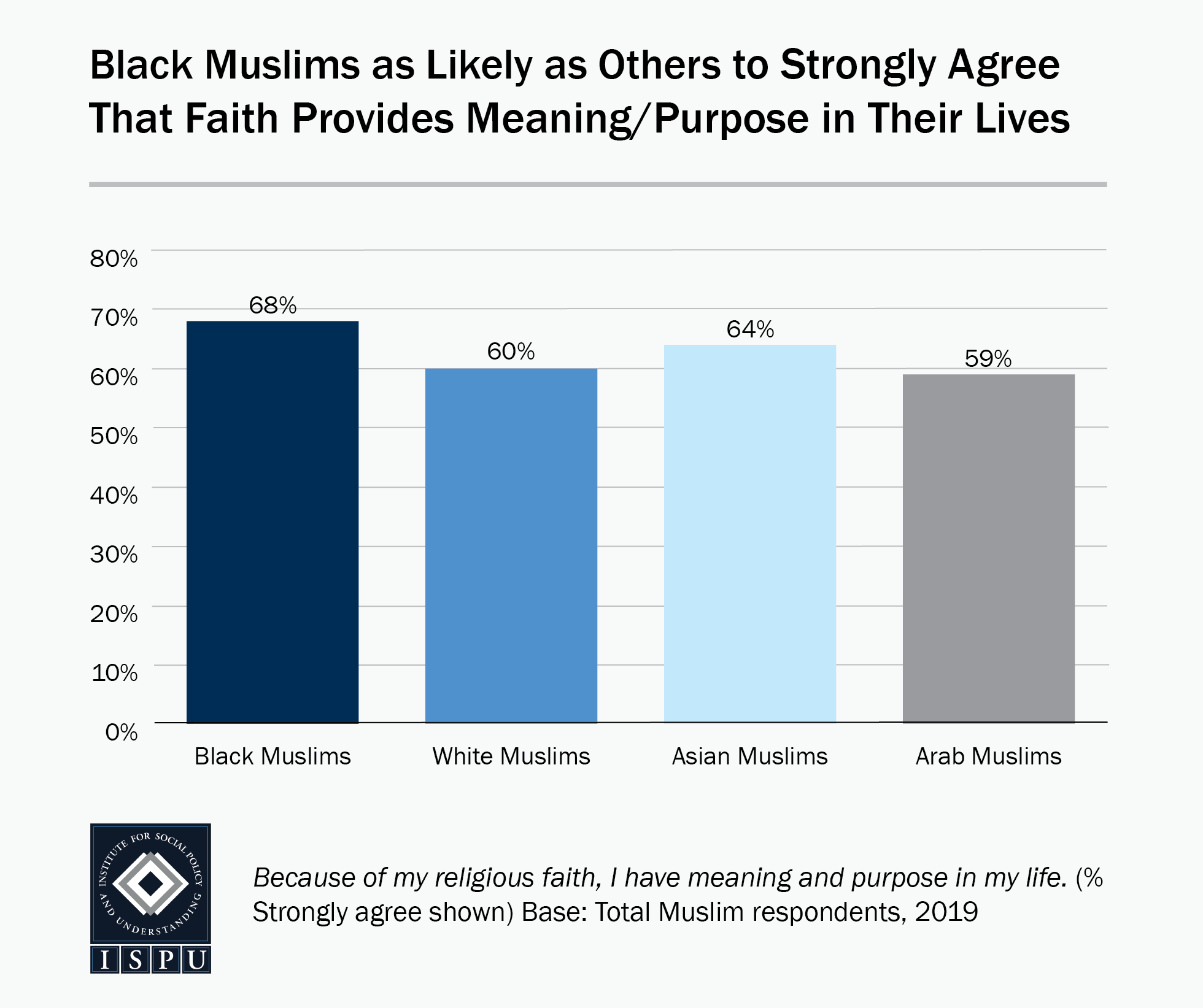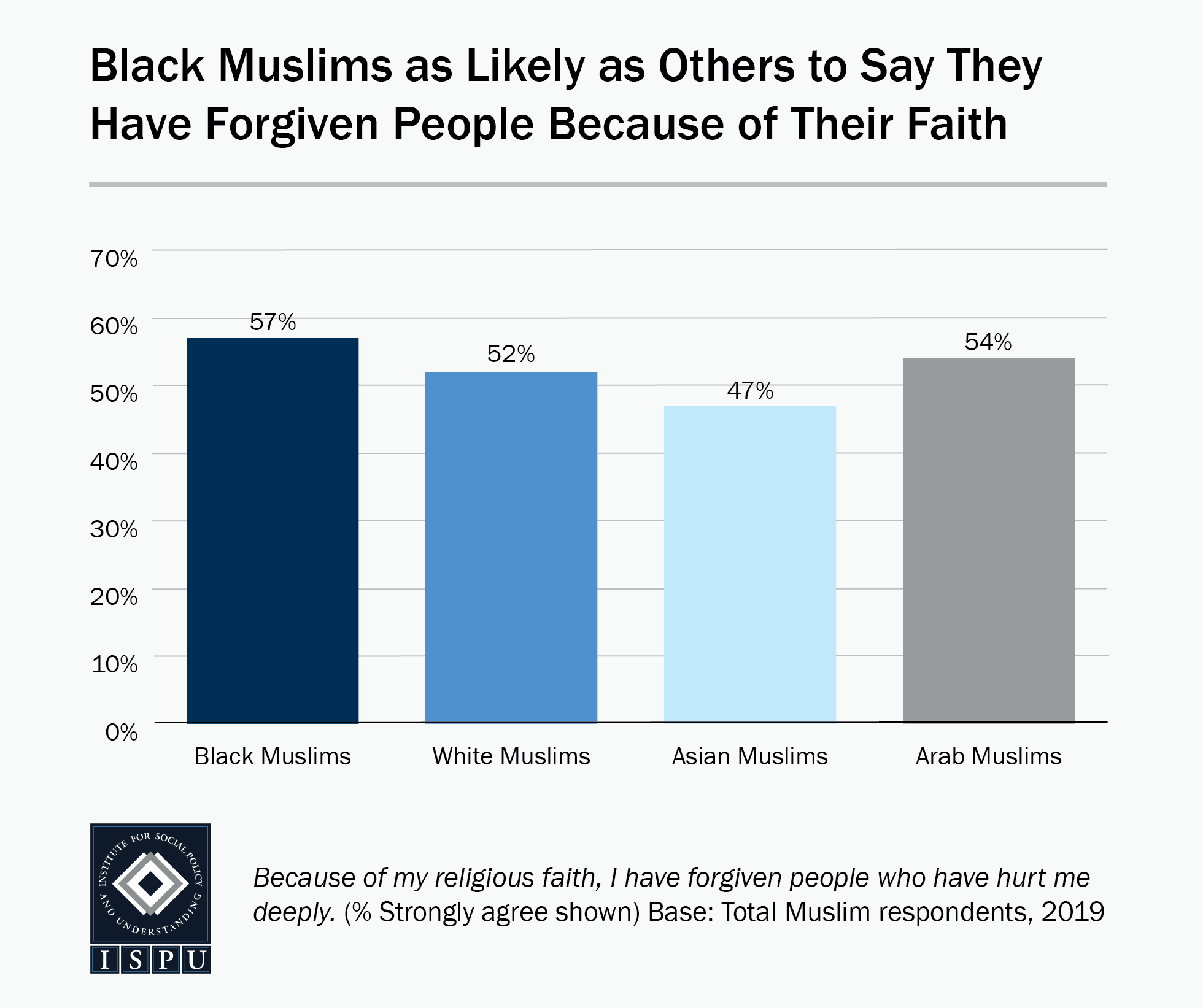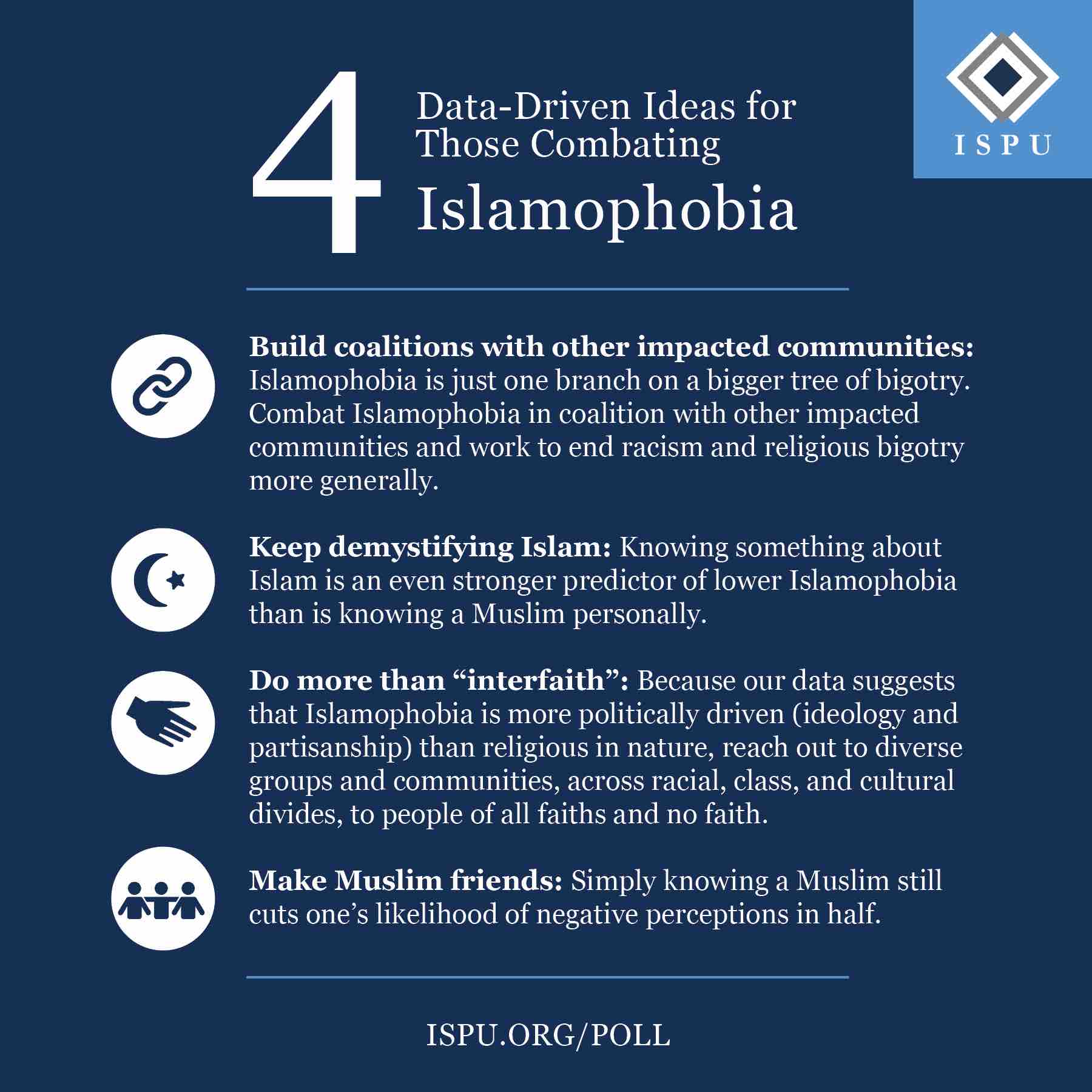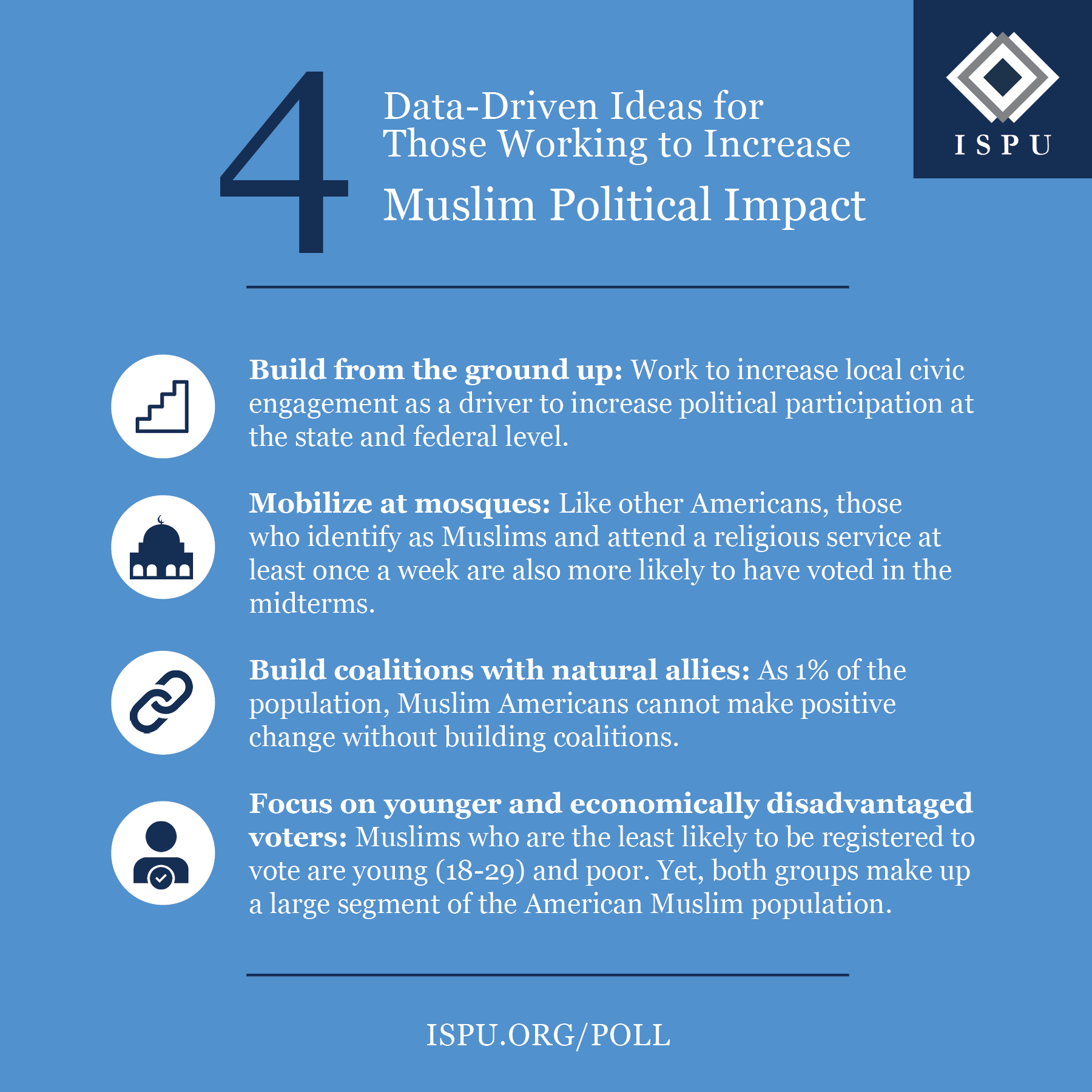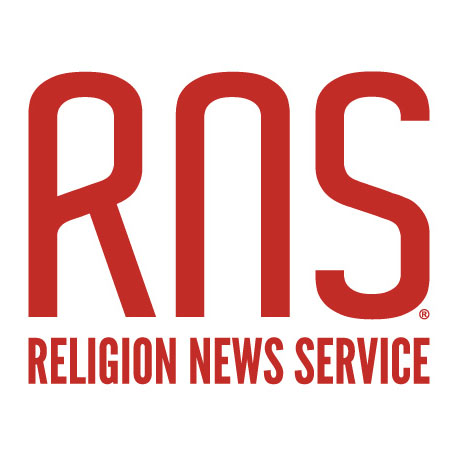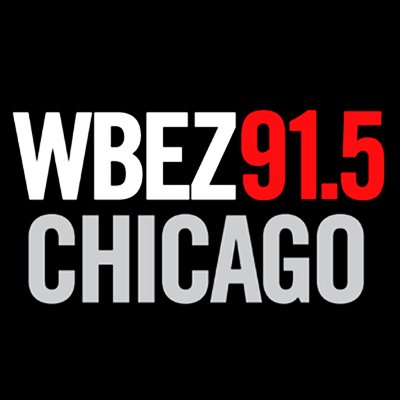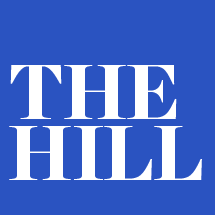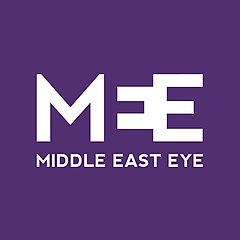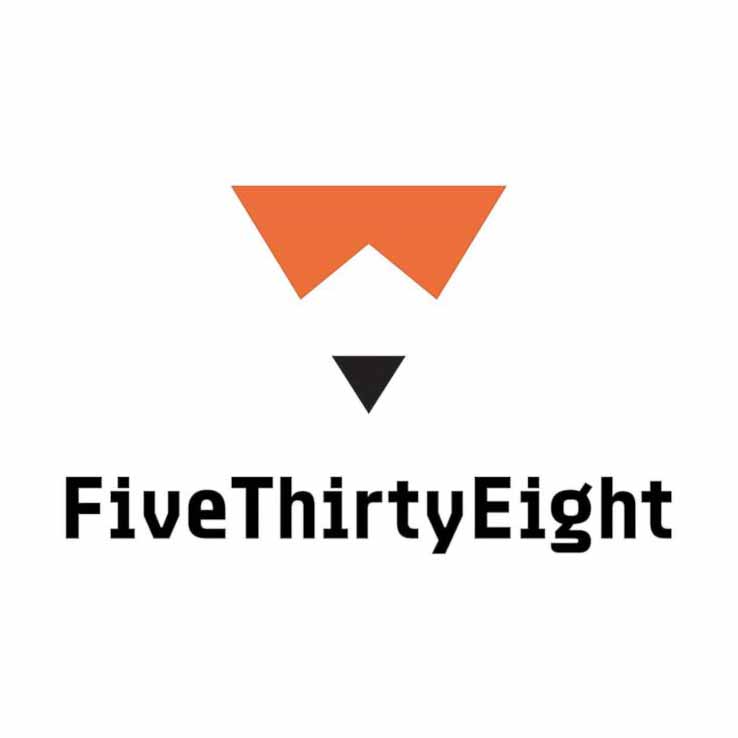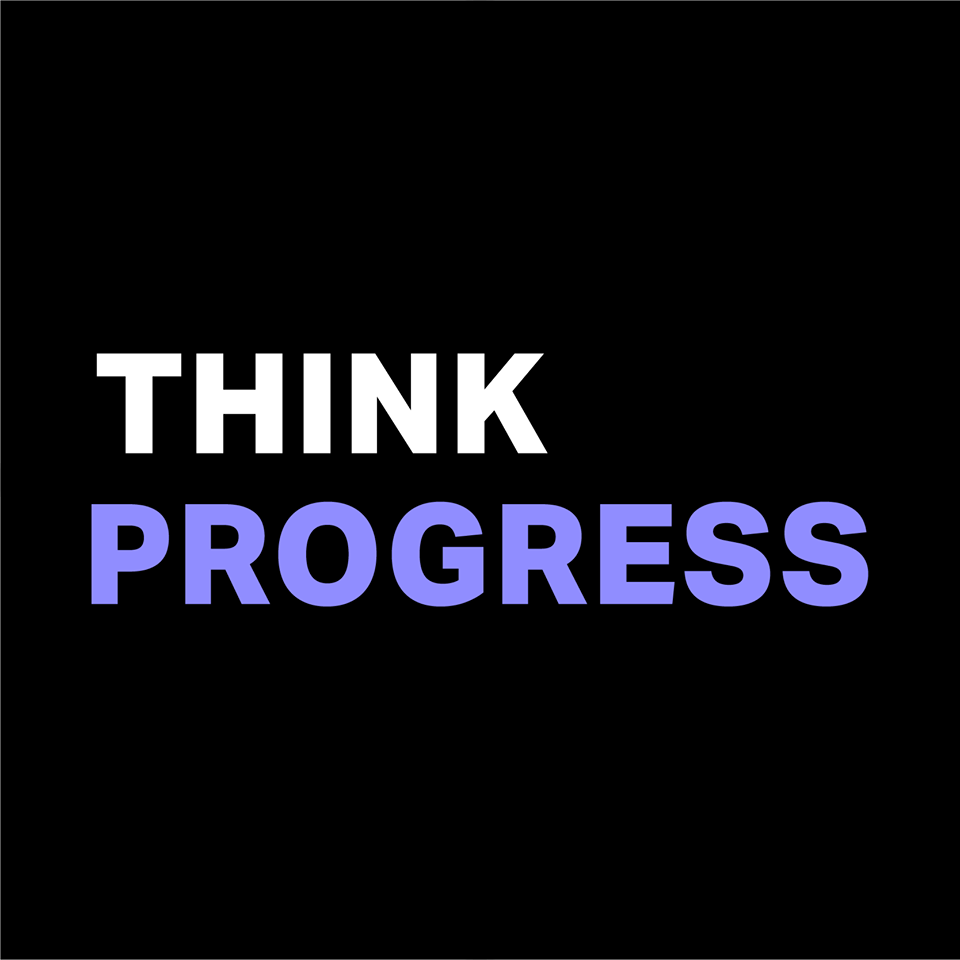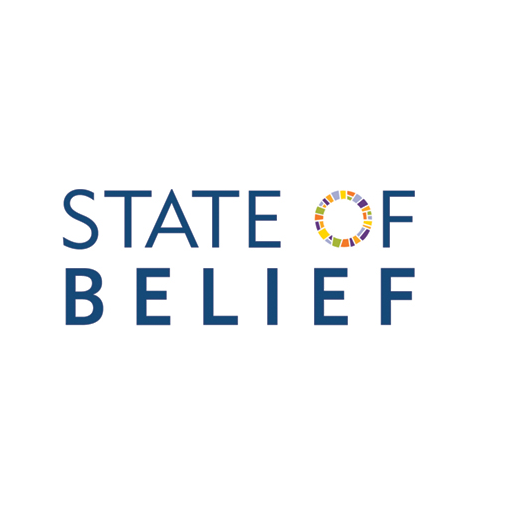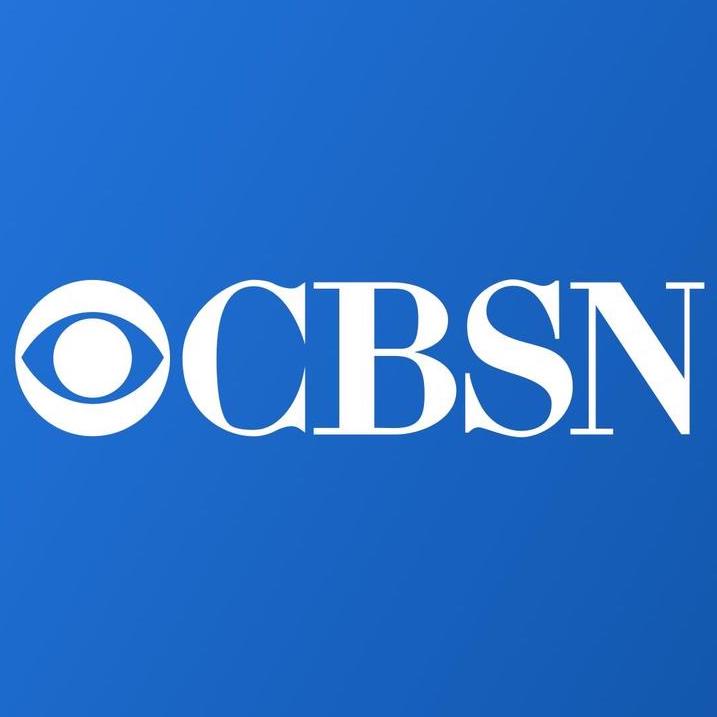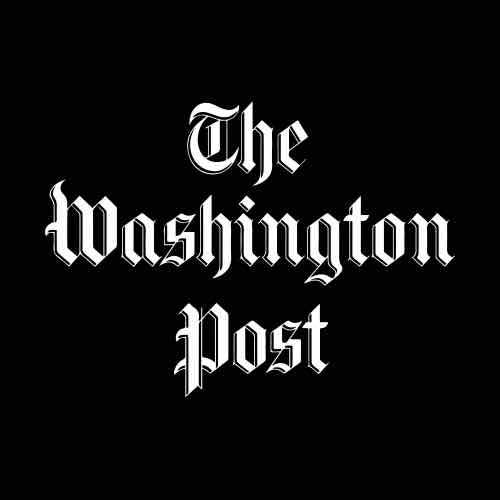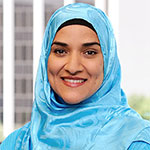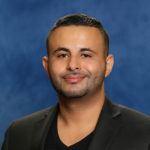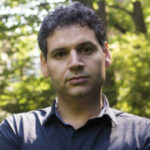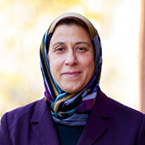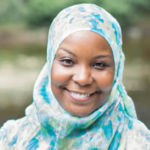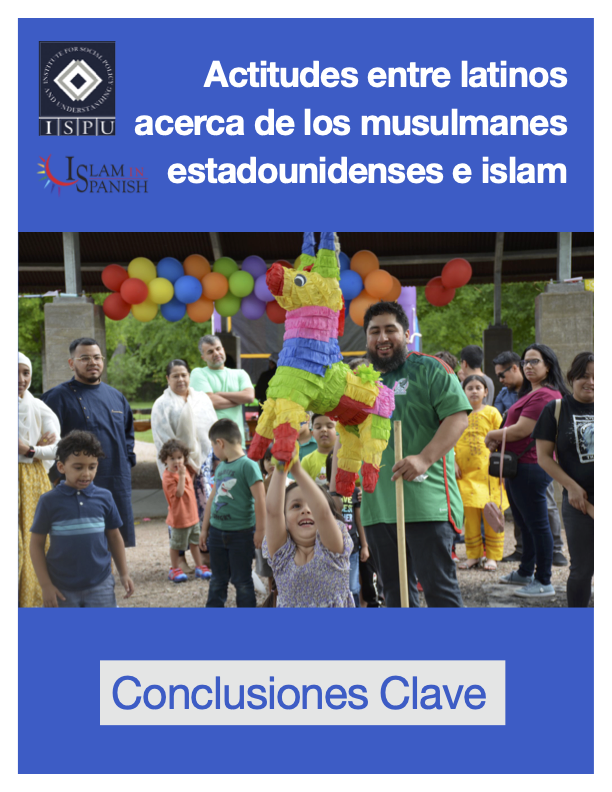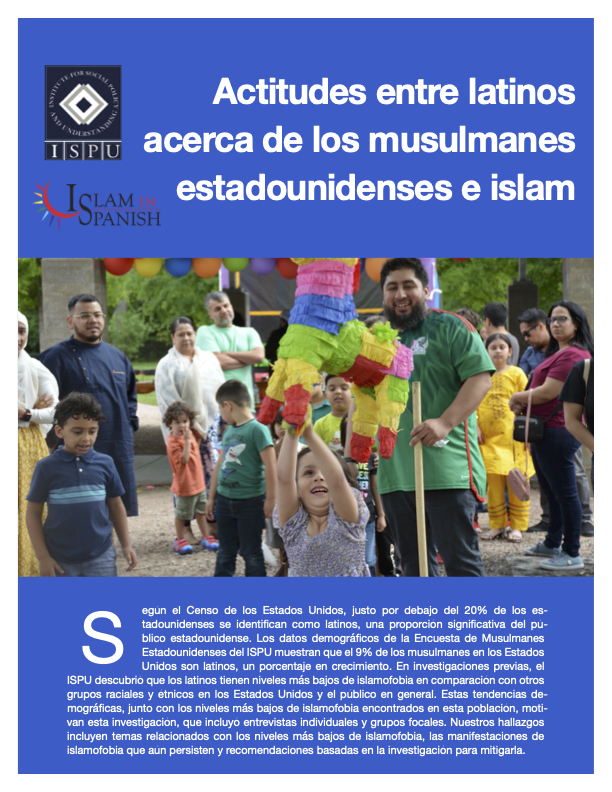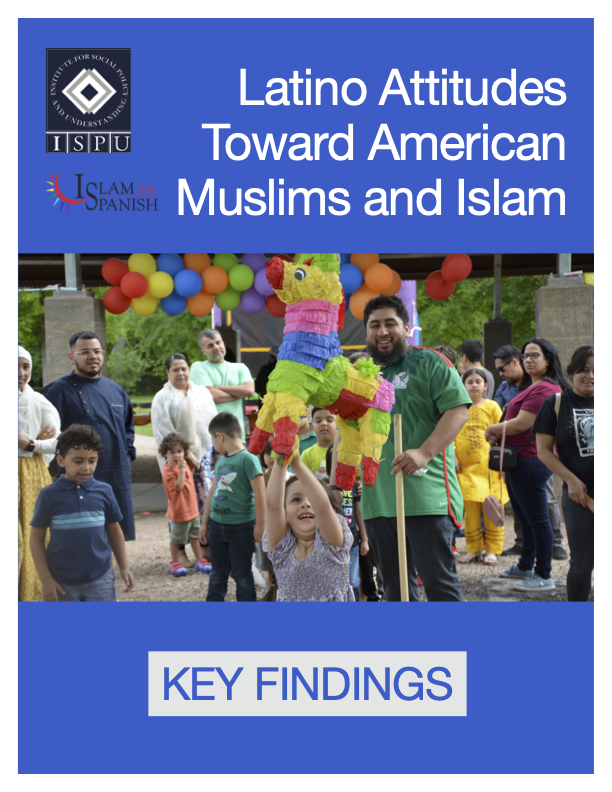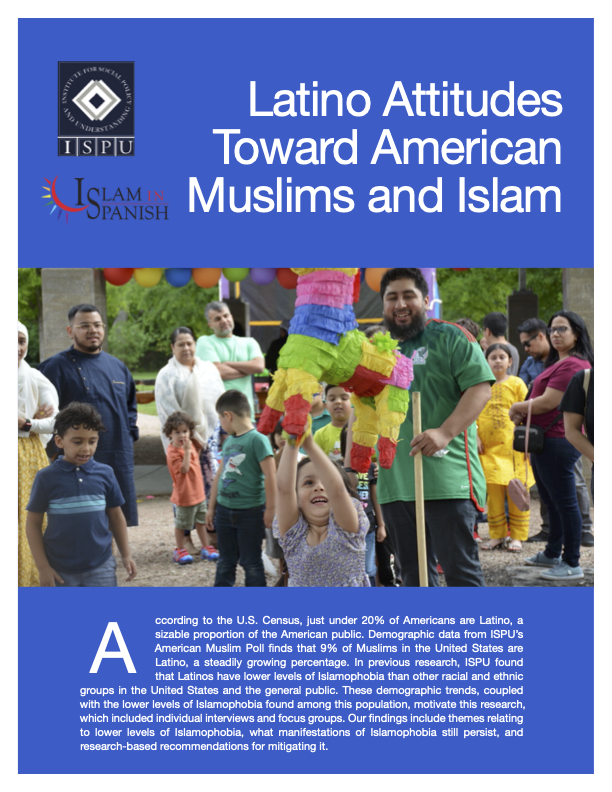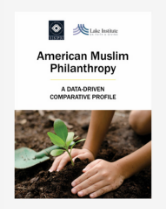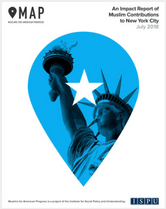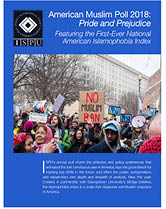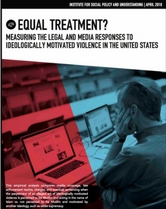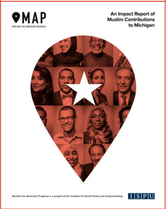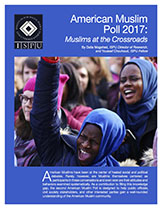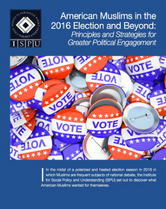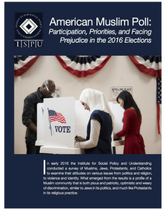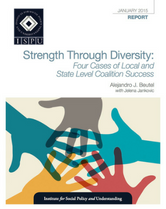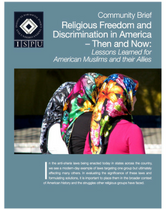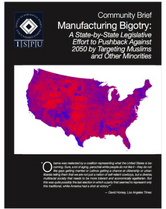Predicting and Preventing Islamophobia
Returning for its fourth year, ISPU’s annual poll surveys Muslims, Jews, Catholics, Protestants, white Evangelicals, and those that consider themselves non-affiliated to compare attitudes across religious groups. Triumphs and tribulations punctuated the year leading up to ISPU’s fourth annual poll. Record-breaking voter turnout at the 2018 midterm elections led to the historic election of a diverse new class of Congress. At the same time, the Supreme Court ruled to uphold the travel ban, and the country faced the longest ever government shutdown. It was against this backdrop that ISPU’s annual poll charts the attitudes and policy preferences of everyday Americans. American Muslim Poll 2019 offers the public, policymakers, and researchers rare depth and breadth of analysis along with a set of data-driven recommendations.
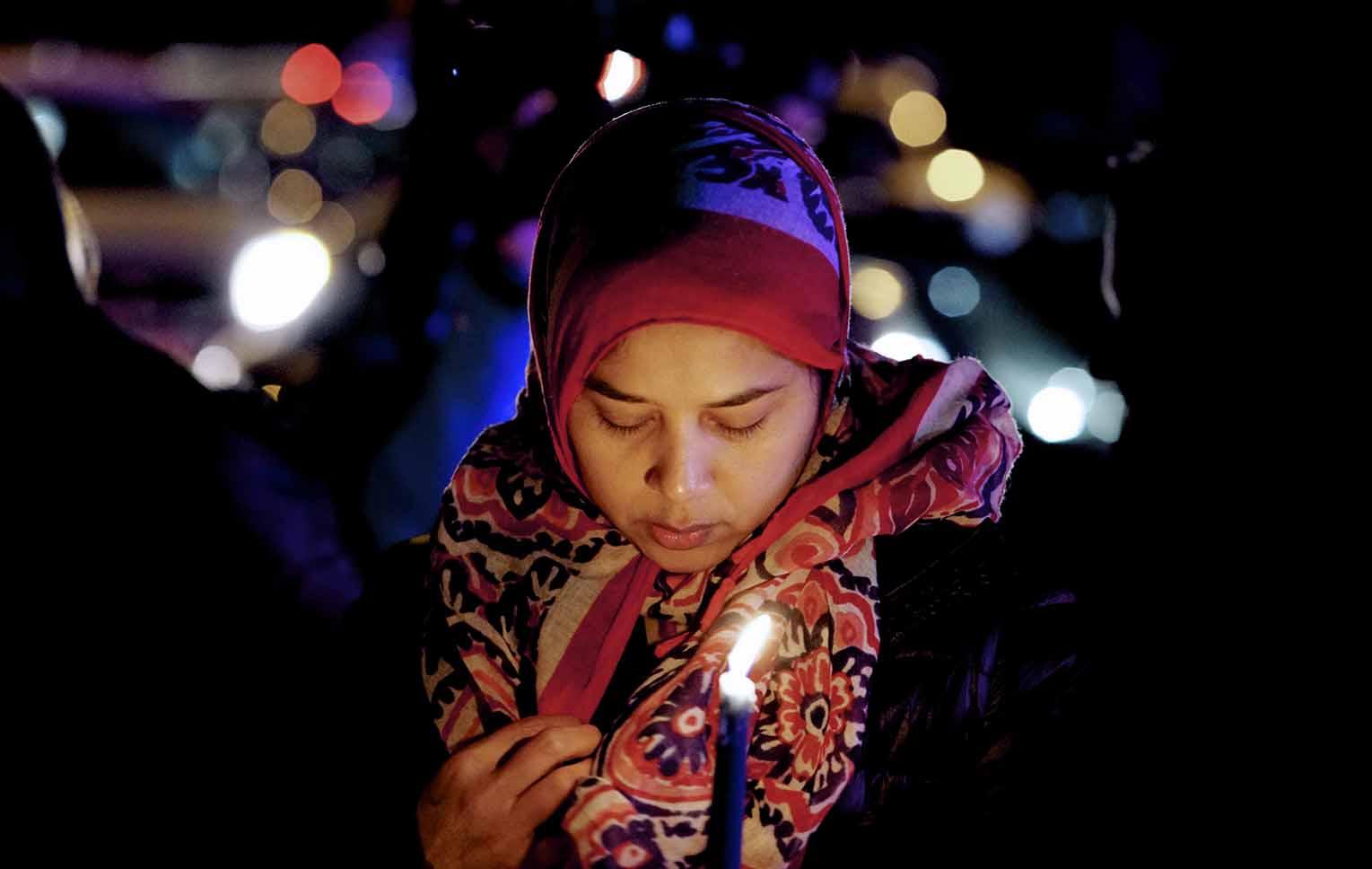
This year’s survey also includes ISPU’s second Islamophobia Index (II), created in partnership with Georgetown’s The Bridge Initiative. Building on previous research, we use the II to examine and tease out factors that predict and prevent Islamophobia.
Do you need reliable, representative, quantitative data on American Muslims? ISPU can help by providing space for purchase on our annual poll at a fraction of the cost of conducting this type of survey yourself. Contact info@ispu.org for more information.
Report & Key Findings
American Muslim Poll 2019: Full Report
Returning for its fourth year, ISPU’s annual poll
29 April, 2019American Muslim Poll 2019: Key Findings
This is a summary of the key findings of ISPU̵
29 April, 2019
Supplementary Documents
Did You Know?
Every year, ISPU conducts this survey of American Muslims, Jews, Catholics, Protestants, and the non-affiliated. It’s the only poll of its kind, offering the latest trends and demographic data on American Muslims. And every year, we rely on individuals like you to keep this research free and accessible to all. Right now, we need your help to keep it that way, so that millions can remain informed on the topics that matter the most. If you value the reliable data our poll provides, consider making a donation in support of ISPU’s American Muslim Poll 2020. It only takes a minute. Thank you.
Additional Analyses
Not Immune: Some Muslims in America Internalize Islamophobia
While Muslims have the lowest levels of Islamophob
01 October, 2019Unwanted Sexual Advances from Faith Leaders Are Equally Prevalent Across Faith Groups
Though unwanted sexual advances from a faith leade
04 November, 2019Muslims Profess More Private Religious Devotion, Less Public Religious Assertiveness
Muslims score highest on dimensions that reflect p
14 November, 2019The Majority of Muslims Believe Poverty Is the Result of Bad Circumstances, Not Bad Character
American Muslims are significantly more likely tha
27 November, 2019To Have and to Hold, Part Two: Interracial Marriage among American Muslims
Nearly 1 in 5 married Muslims report being in an i
22 January, 2020Suicide Attempts of Muslims Compared With Other Religious Groups in the US
On July 21, 2021, an article in JAMA Psychiatry fo
21 July, 2021
.
Infographics
.
Videos
Muslims are one of the most talked-about groups in American politics, but little is known about how they’re engaged politically… until now. Here are four data-driven ways to increase American Muslim civic participation.
Islamophobia is pervasive and intensely damaging, but it can be combated, and ISPU’s data can show you how. Here are four data-driven ways you can combat Islamophobia.
May 1, 2019 – ISPU Director of Research Dalia Mogahed presents key findings from American Muslim Poll 2019 at NYU-Washington DC. This summary is followed by a discussion with moderator Mehdi Hasan and panelists John Esposito, Walter Ruby, and Ibram Kendi.
Dive into the Data
Click here to download all 24 graphs and figures from our 2019 survey.
CIVIC ENGAGEMENT
FAITH + COMMUNITY
ISLAMOPHOBIA INDEX
RACE + FAITH
RECOMMENDATIONS
In the News
In the News
Meet the Research Team
Meet the Study Advisors
Meet the Research Team
Meet the Study Advisors
Related Projects
Actitudes entre latinos acerca de los musulmanes estadounidenses e islam: Conclusiones Clave
Read the key findings of the Latino Attitudes Towa
17 October, 2023Actitudes entre latinos acerca de los musulmanes estadounidenses e islam: Full Report
Read the full report of the Latino Attitudes Towar
17 October, 2023Latino Attitudes Toward American Muslims and Islam: Key Findings
Read the key findings of the Latino Attitudes Towa
17 October, 2023Latino Attitudes Toward American Muslims and Islam: Full Report
Read the full report of the Latino Attitudes Towar
17 October, 2023American Muslim Philanthropy: A Data-Driven Comparative Profile
ISPU’s American Muslim Poll of 2018: Pr
17 July, 2019Full Report: An Impact Report of Muslim Contributions to New York City
To fill the widespread gaps in knowledge about Ame
03 July, 2018American Muslim Poll 2018: Full Report
ISPU’s annual poll returns for a third year
30 April, 2018Executive Summary | Equal Treatment?: Measuring the Legal and Media Responses to Ideologically Motivated Violence in the United States
This is an executive summary of the report Eq
05 April, 2018Full Report: An Impact Report of Muslim Contributions to Michigan
To fill the widespread gaps in knowledge about Mus
08 May, 2017American Muslim Poll 2017: Full Report
American Muslim Poll 2017: Muslims at the Crossroa
21 March, 2017American Muslims in the 2016 Election and Beyond: Full Report
In the midst of a polarized and heated election se
05 April, 2016American Muslim Poll 2016: Full Report
American Muslim Poll 2016: Participation, Prioriti
15 March, 2016Full Report | Strength Through Diversity: Four Cases of Local and State Level Coalition Success
Since 9/11, the public spotlight on American Musli
01 January, 2015Religious Freedom and Discrimination in America – Then and Now: Lessons Learned for American Muslims and Their Allies
In the anti-sharia laws being enacted today in sta
10 November, 2014Manufacturing Bigotry: A State-By-State Legislative Effort to Pushback against 2050 by Targeting Muslims and Other Minorities
Demographics in the United States are changing rap
10 November, 2014


